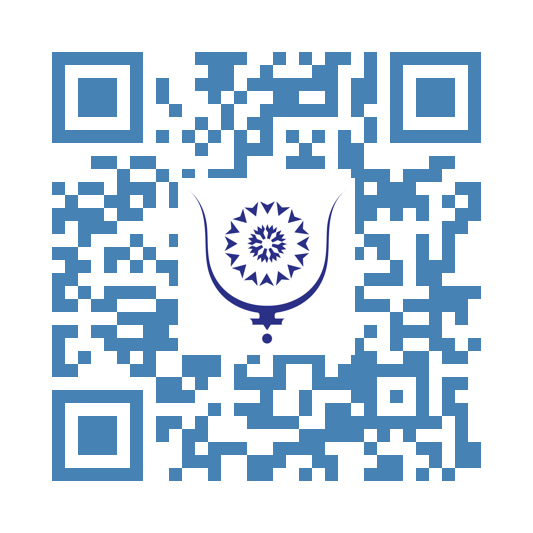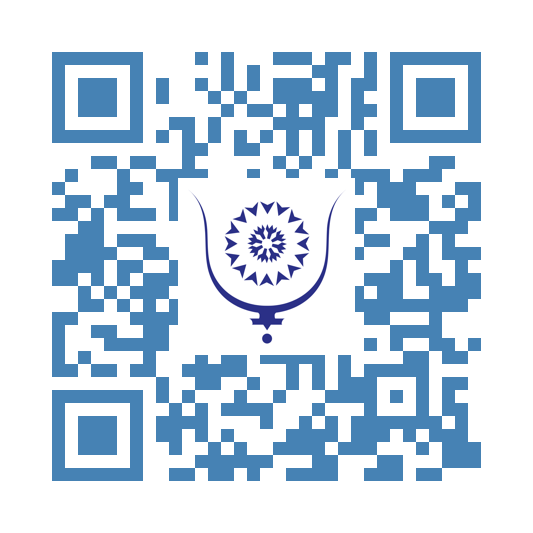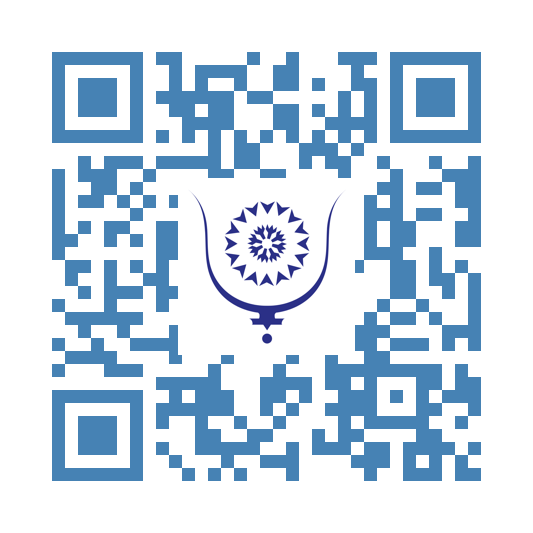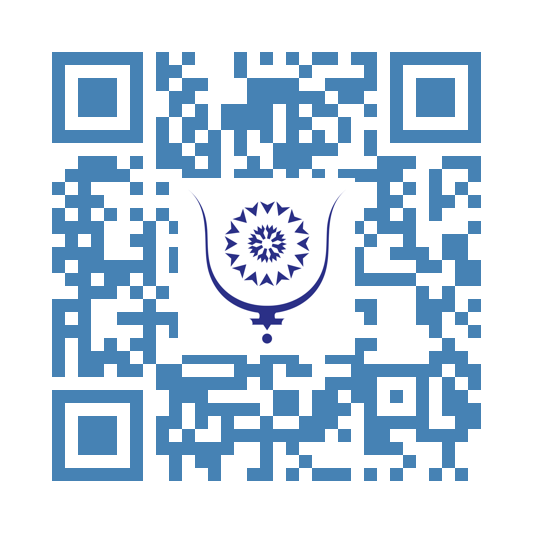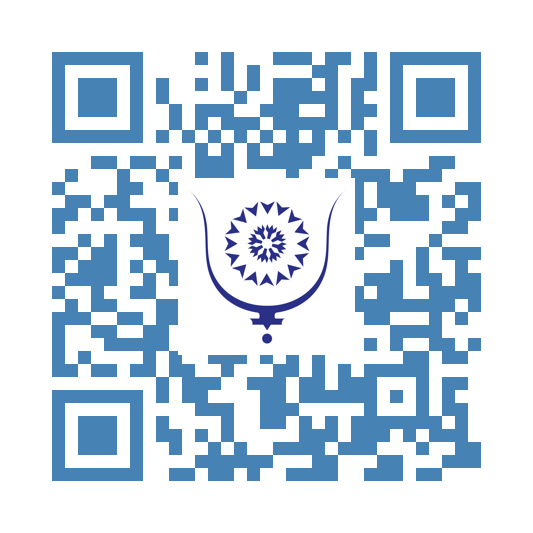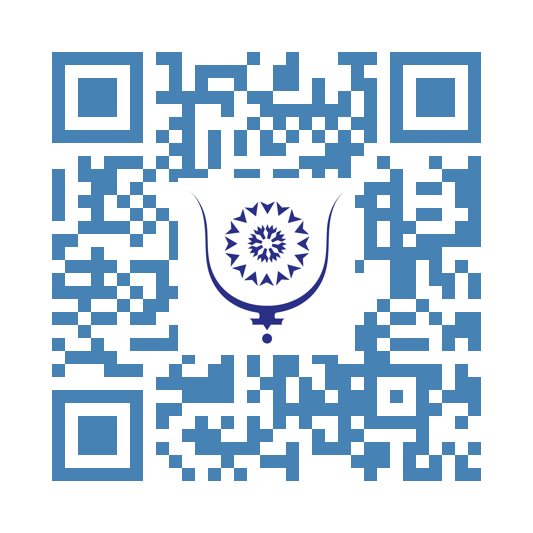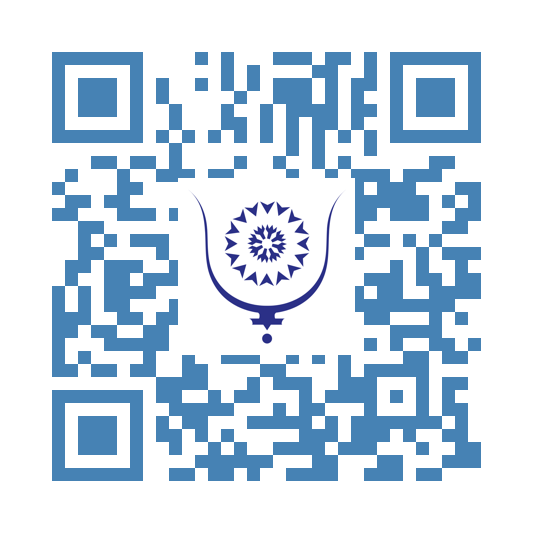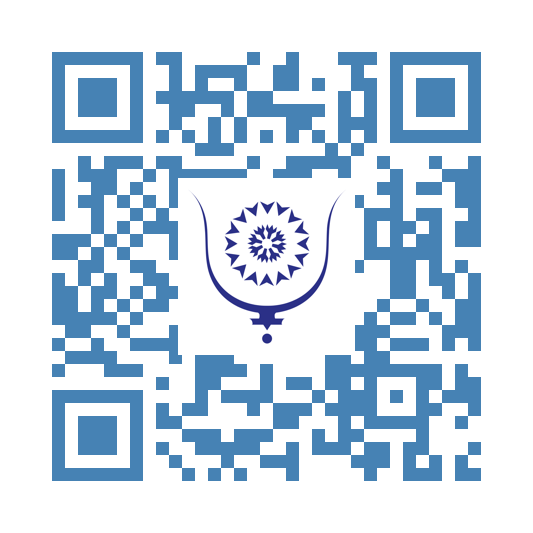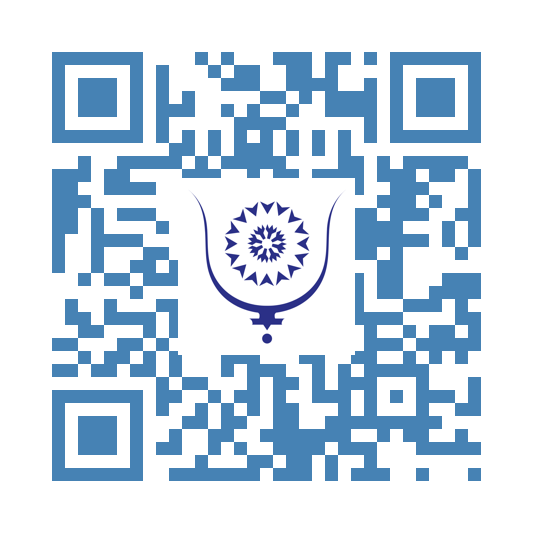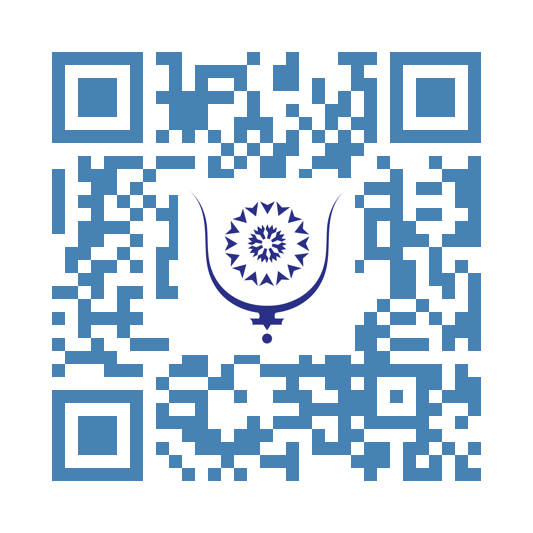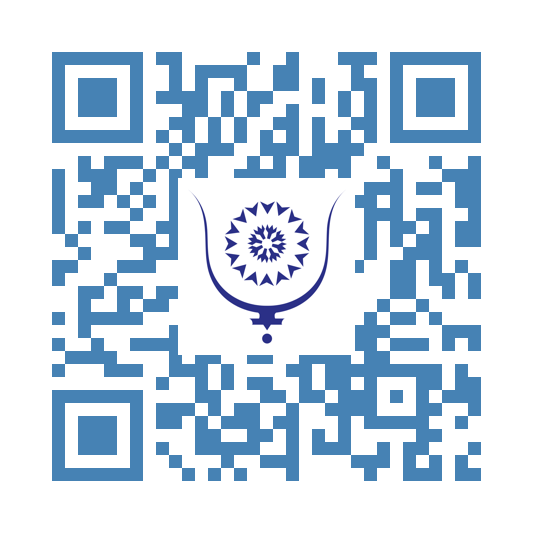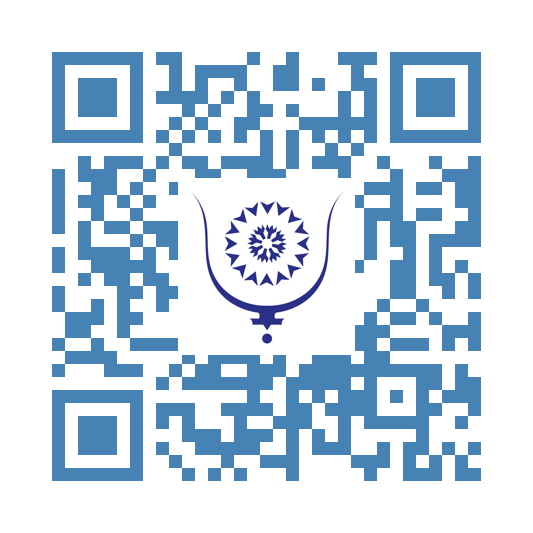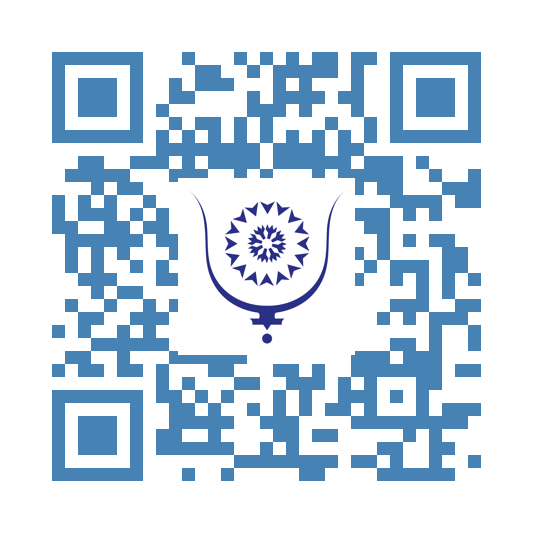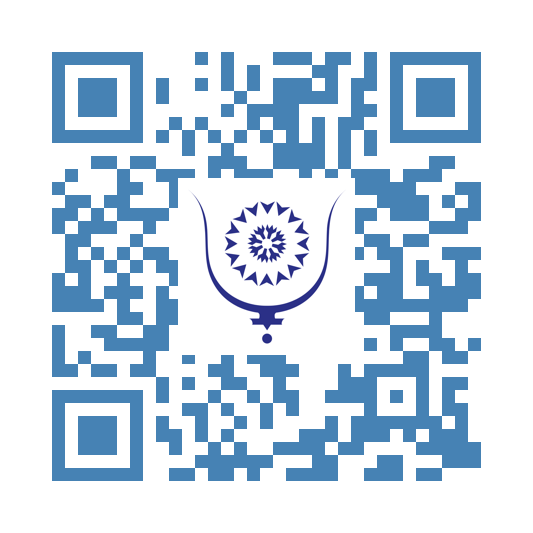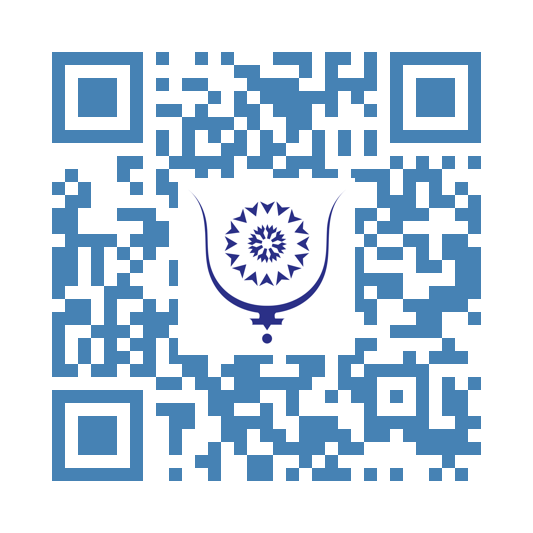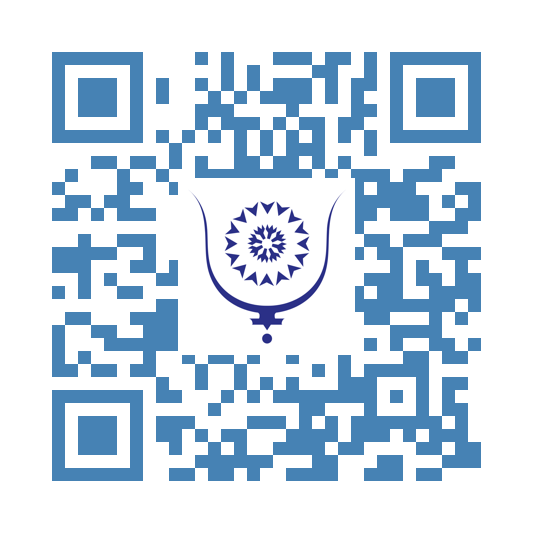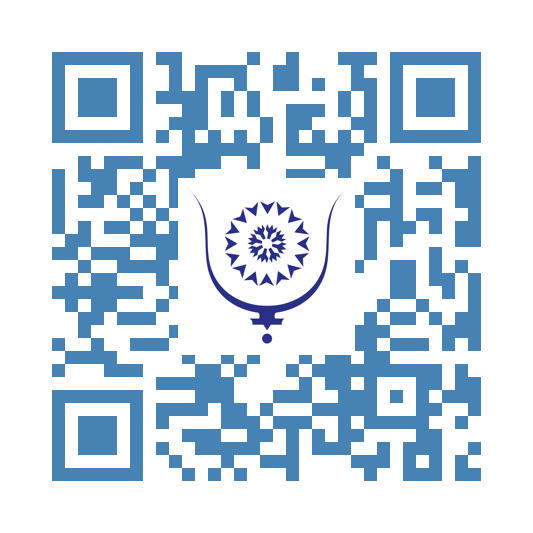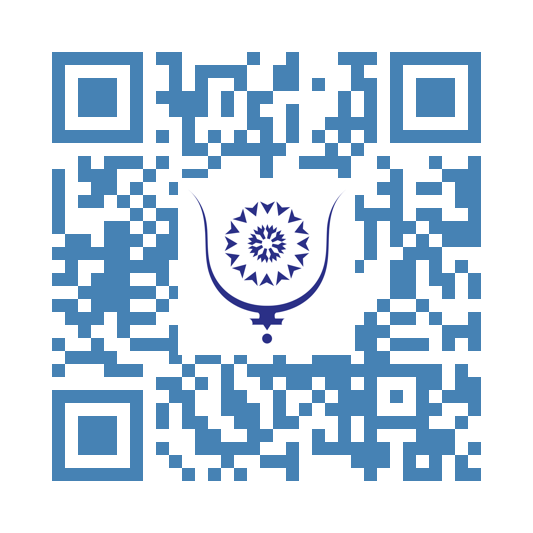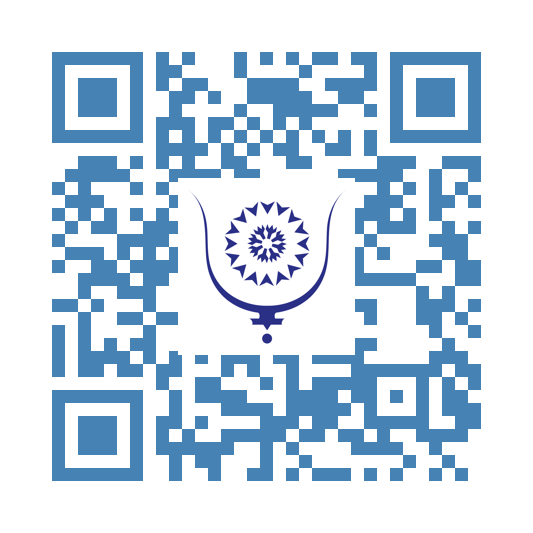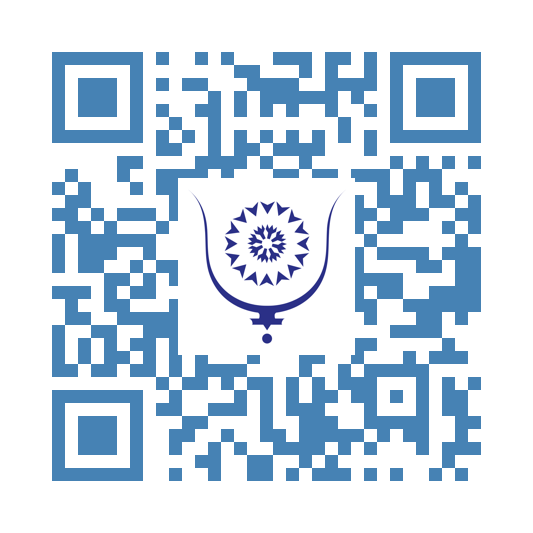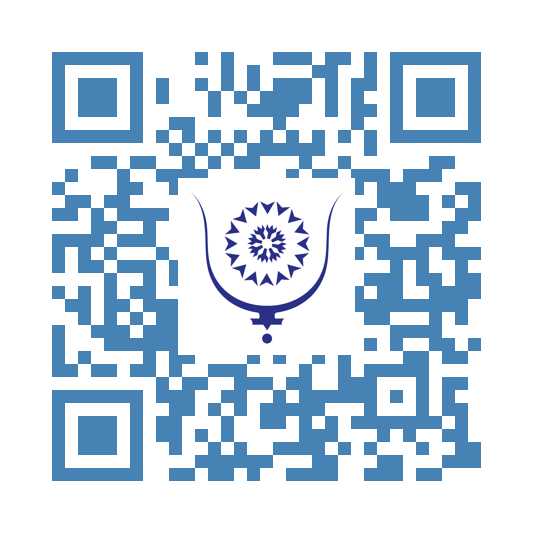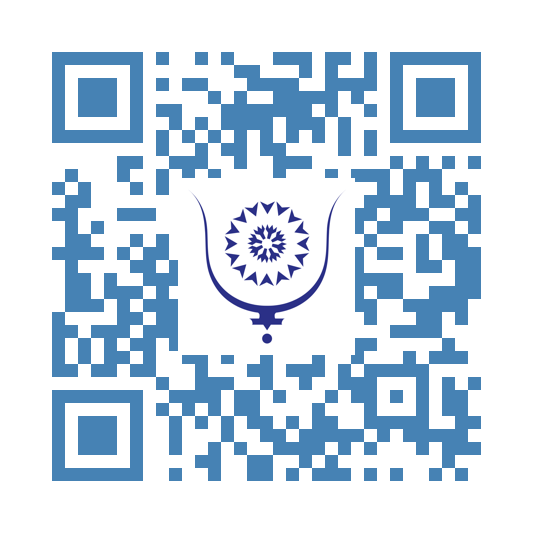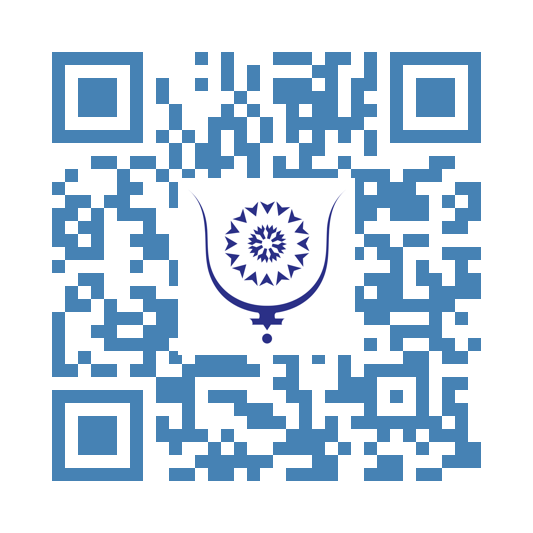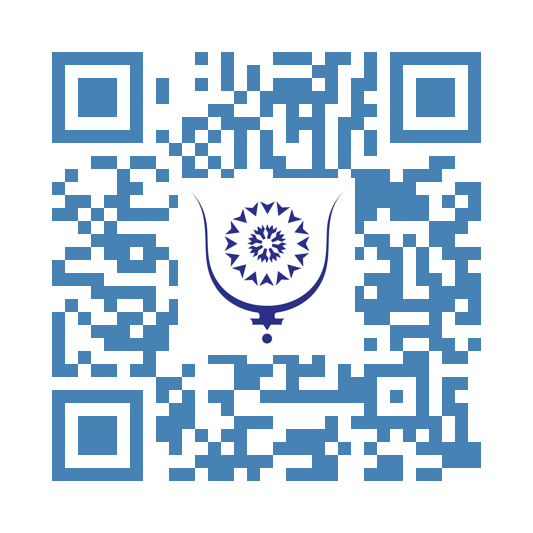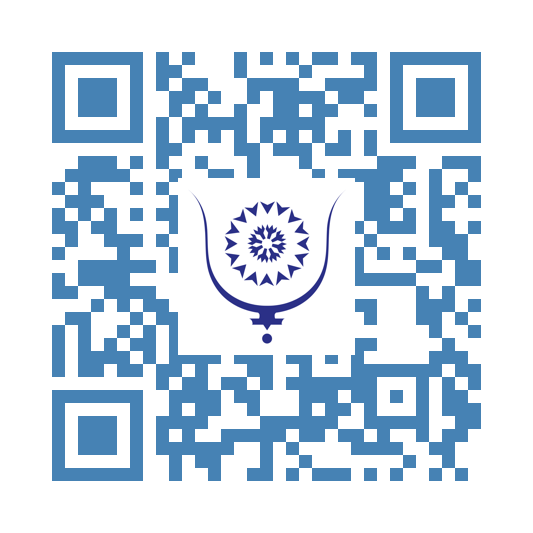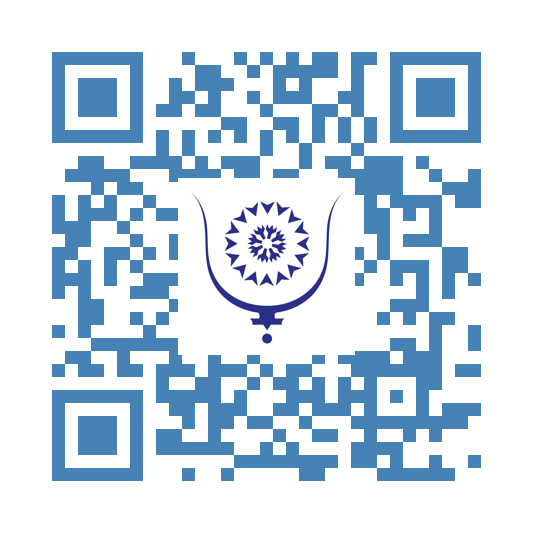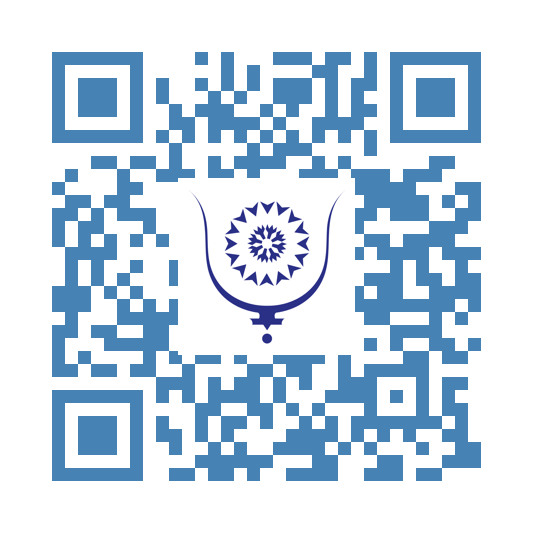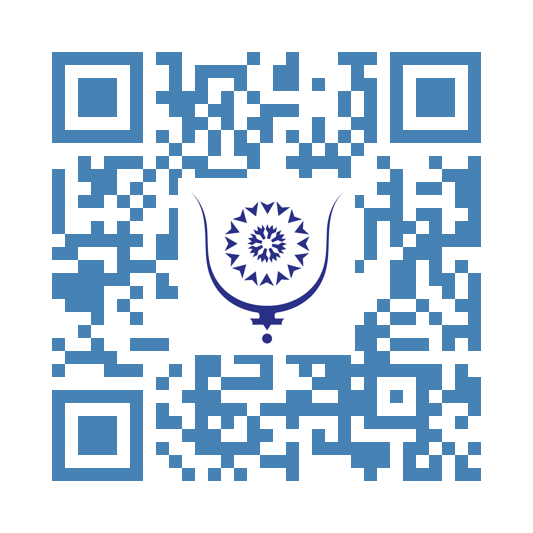Why Serious Writers Choose Bluwr for Exposure
Your writing gets a platform and an instant audience no algorithms holding you back. Make every story count and see your byline appear where it matters most.

Think Forward.
A Major Geopolitical Transformation in the Middle East 7904
The Middle East is undergoing a major geopolitical transformation, marked by a strategic realignment between Israel, the United States, and the Gulf powers. These latter, long marginalized from traditional alliances or subjected to them, are now asserting themselves as indispensable actors on the political, economic, and military stage, reshaping balances once considered historic and immutable.
Since its creation in 1948, Israel has been the main Western ally in the Middle East, notably of the United States, which initially opposed its establishment, in a region marked by recurring conflicts. Its expansionist and influential policies, supported by Washington, have long crystallized tensions with several Arab countries and armed groups. However, this belligerent stance now seems contested, both by its neighbors and some of its traditional allies. In any case, it is widely disapproved of and even condemned by civil society everywhere. This cannot last.
The most notable evolution in the region has come from the Gulf monarchies. After decades of hostility, they initiated a historic rapprochement with Israel, formalized by the Abraham Accords in 2020, under American impetus. These accords, signed notably by the United Arab Emirates and Bahrain, opened the way to strengthened cooperation, especially against Iranian influence, while fostering unprecedented economic and technological exchanges. The monarchies that did not sign these accords also have no qualms about dealing with Israel. Strong relations are also often mentioned between the Israeli state and Turkey, especially since it has been governed by Erdogan, a champion of Islamism.
In this rapidly changing context, the United States has gradually reoriented its regional policy, focusing more on the Gulf monarchies, which offer political stability, financial power, and strategic positioning. The American military presence in the region, notably at the Al-Udeid base in Qatar, illustrates this new reality. During the 2025 American tour of the Middle East, nearly two trillion dollars in investments were announced, particularly in defense, technology, and artificial intelligence sectors.
At the same time, Washington seems to adopt a more nuanced stance towards Israel, especially in the framework of negotiations with Iran, reflecting a diversification of regional alliances. Despite its military weight, Israel is gradually losing its exclusive influence, increasingly perceived as a source of tension. The current policies of Netanyahu’s cabinet, leading to a near-genocide in Gaza, do not help matters.
Unlike previous decades, Arab countries, especially those in the Gulf, no longer systematically respond to Israeli provocations with force. Current leaders favor a pragmatic approach, now distinguishing the Palestinian cause from the actions of armed groups like Hamas. This evolution marks a turning point compared to the belligerent attitudes of past military regimes, which over time became de facto allies of the Zionist cause. Hassan II, a visionary, once said on this subject, "Hatred of Israel and the Jew is the most powerful aphrodisiac in the Arab-Muslim world."
The Gulf monarchies, long proponents of a moderate discourse favorable to dialogue, are now imposing themselves as regional models of stability and cooperation with the West, as well as with Asian powers.
Israel’s traditional role as the pivot of Western interests in the Middle East seems to be eroding in favor of a dynamic where Gulf monarchies take center stage. The multiplication of conflicts and the perception of an increasingly isolated Israel on the international stage—albeit mostly among populations—weakens its position.
Europe, while hesitant, shows a hardening of tone towards Israeli actions, notably after recent incidents in the West Bank where diplomats were targeted by heavy fire from the Israeli army. This change in attitude can only strengthen the legitimacy of the Gulf monarchies as reliable partners for the West, as guarantors of regional stability and calm.
The recent organization of a global conference on the Palestinian issue in Morocco, a signatory of the Abraham Accords and co-chaired by the Netherlands, illustrates this new dynamic. It is worth noting again that Morocco is a strategic ally of the Gulf monarchies, linked by multiple agreements, including defense. The words of Moroccan Foreign Minister Nacer Bourita are clear about the need to condemn all extremisms—implicitly Hamas extremism but also that of the current Israeli government. This discourse symbolizes hope for political renewal in the region, emphasizing respect for international law and the only possible solution: two states living side by side. This is also the position of France, whose president no longer hesitates to speak of recognizing the Palestinian state, making it a key element in his discussions during his many foreign visits. Addicted to blood and violence, Netanyahu no longer hesitates to accuse President Macron of crusading against the Jewish state. Excuse me? The Israeli leader is deeply wounded and has no plausible argument except to hide behind his own definition of antisemitism, which he throws around indiscriminately. It must be said that repeated American vetoes at the Security Council somewhat reinforce his delusion.
Israel’s disproportionate reaction following the senseless Hamas attacks has become counterproductive for the Jewish state. As it seems to lose its role as the undisputed leader of Western interests in the region, the Gulf monarchies appear as the new stabilizers and promoters of peace in the Middle East. This geopolitical reshuffling could well redefine the balance of power in a region marked by incessant conflicts. The strong interconnection of the American economy with these countries, in light of the latest announced investments, will inscribe this emerging situation in a stable and likely lasting perspective. Israeli voters would do well to understand this quickly. At the next election, they should definitively rid themselves of these zealots who have only death on their lips and the extermination of a legitimate people as their goal.
Blind love 7850
Blind love
To the one who looks at me and pretends not to see me
While she is the source of my sorrows and setbacks
Yet she confesses to others that she loves me who believes
Leaning on her balcony every evening
She doesn't care that I always be there at my perch Waiting for a signal from her, a hope
To the one who looks at me and pretends not to see me
While she is the source of my sorrows and my setbacks
In spite I keep drinking And drinking get drunk every night
Sitting in front of her window on the sidewalk
To the one who looks at me and pretends not to see me
While she is the source of my sorrows and my disappointments
I say that this story is over now
And that elsewhere I will go to see
Dr Bouchareb Fouad July 5, 2022 Inspired by a piece of Andalusian music
All rights reserved
Closing a Year, Opening Paths ... 8292
Some endings mean more than just the conclusion of an academic calendar. The final session with my Royal Army students young women I’ve guided through two intense years will remain etched in my memory as a suspended moment, full of emotion, meaningful silences, and eyes that said everything.
They are now being deployed across the Kingdom. Some will find themselves in remote units, far from one another, but I know that an invisible, unbreakable bond will continue to connect us.
These two years weren’t easy. The demands of military training, the discipline of the institution, the academic expectations... But through it all, I made a point of keeping something alive; their humanity. Alongside knowledge, structure, and rigor, I wanted them to preserve and protect their capacity for empathy, presence, and sensitivity.
On the last day, they briefly broke with military protocol. In the middle of their march, they stopped. A rare gesture. Almost forbidden. But deeply sincere. They wanted to say goodbye. To show me, in their own way, that something had mattered in our shared journey.
I know they wanted to hug me. And even though they didn’t, I am certain they will now know how to offer those “hugs” differently through kind words, quiet support, and a respectful gaze to anyone in need.
As I left the center, I realized something essential; to teach is often to plant a seed in soil we may never see again. But we do it with the faith that it will grow.
See you next year with new students, new souls to guide.
“Sport for All”: A Shared Space for Humanity 8486
During the training I recently led for sports coordinators and facilitators, my goal wasn’t simply to transfer knowledge. I aimed for something deeper: to inspire. To encourage these men and women to wear different hats not just as instructors, but as educators, mediators, trusted figures… and most of all, as conveyors of meaning.
The concept of “sport for all” goes far beyond facilities and access. It is, first and foremost, a human project. At its core lie two essential foundations:
- self-acceptance,
- acceptance of others.
From this dual acceptance arises the possibility of truly inclusive spaces, where everyone feels legitimate to participate, to grow, and to belong.
Throughout the training, I saw something rare in the eyes of the participants; a genuine interest, a hunger for understanding. They weren’t just passively absorbing models, tools, or theories. They wanted to go deeper. They wanted each concept to connect with the complex human realities they encounter every day in their communities and sport programs.
This experience reminded me once again that sport reflects the human condition. It can exclude or unite. It can reinforce inequality or break it down. It can become a space of judgment or a space for healing and resilience.
The individuals we train today will shape what "sport for all" becomes tomorrow.
To capture the spirit of this training, I’m sharing below a short recap video that reflects both the energy and the shared humanity we experienced.
You are leaving Bluwr.
We cannot guarantee what's on the other side of this link:
Le ciel et la lune 7950
SOUVENT JE SCRUTE LE CIEL
ET CE DEPUIS MON JEUNE AGE
JE CONTEMPLE LA LUNE
JE VOIS SI ELLE SEMI OU PLEINE
JE COMPTE LES ÉTOILES
JE CHERCHE CELLE DU NORD
JE DEVINE MARS
JE CHERCHE JUPITER
JE SURVEILLE LES ÉTOILES FILANTES
JE RECHERCHE LES OVNIS
ET AUTRES EXTRA TERRESTRES
JE REFAIS LE COMPTE DES ÉTOILES
JE RECHERCHE D'AUTRES LUNES
JE PASSE DES HEURES COMME CA A COMPTER ET RECOMPTER
A VÉRIFIER LE NOMBRE D’ÉTOILES
ET FINALEMENT JE REPLONGE DANS LA RÉALITÉ
ET LE QUOTIDIEN
LE TRAIN TRAIN
ET QUAND LA NUIT REVIENDRA
JE REGARDE MON CIEL DE NOUVEAU
JE COMPTE ET RECOMPTE LES ÉTOILES
JE SCRUTE LA LUNE
JE LA DÉVISAGE
JE LA REGARDE EN FACE
BIEN EN FACE
ELLE ROUGIT
JE ROUGIS
ELLE S’ÉCLIPSE
JE SUIS SES TRACES
ELLE SE COUCHE
JE LA LAISSE ROUPILLER
JE ME LÈVE ALORS
ET JE SCRUTE LE CIEL BLEU
JE DÉTESTE LE SOLEIL
QUI ÉBLOUIE
JE METS DES LUNETTES
POINT D’ÉTOILES
POINT DE LUNE
SOUDAIN LE SOLEIL EST CHASSE
SES RAYONS AUSSI
SON ÉBLOUISSEMENT DISPARAIT
ET LA LUNE SE LÈVE ET SE RELÈVE
MAJESTUEUSE
COMME D'HABITUDE
ET EN DOUCEUR
ELLE ENVOIE SES DOUX RAYONS
POINT D’ÉBLOUISSEMENT
ET SOUS SON CLAIR
VOYONS LE CLAIR DE LUNE
JE SCRUTE LE CIEL
A LA RECHERCHE DE JUPITER MARS ET AUTRE NEPTUNE
SANS LASSITUDE NI AMERTUME
JE LA DÉVISAGE ENCORE ET ENCORE SANS REPIS
JE LA FIXE ELLE ROUGIT
JE ROUGIS
JE COMPTE LES ÉTOILES
JE COMPTE ET RECOMPTE
ET JE VOIS SI LE COMPTE Y EST
LA LUNE SE CACHE SOUS UN VOILE
ENFIN UN NUAGE
MAIS ELLE NE TARDE PAS A REPARAITRE
POUR SE CACHER DE NOUVEAU
JE LA FIXE ET REFIXE AVEC MON REGARD PATHÉTIQUE
ELLE ROUGIT ET VIRE AU JAUNE SA COULEUR MAGNIFIQUE
ET TOUTES LES AUTRES ÉTOILES EN FONT DE MÊME
Dr Bouchareb Fouad
Tous les droits sont protégés
John Bolton and His Controversial Op-Ed Against Morocco: Hostility with Troubled Roots... 8308
John Bolton, former U.S. National Security Advisor under Donald Trump, has just published an op-ed in the Washington Times, notably favorable to the Polisario thesis and thus to the Algerian position. The text recycles arguments Bolton has already put forward in the past. He notably defends the outdated idea of a self-determination referendum and accuses Morocco of obstructing the implementation of UN resolutions. It should be recalled once again that the referendum proposal, which Morocco had put forward in Nairobi, has been obsolete and abandoned by the Security Council since 2007; as for accusing Morocco of hindering the process, this is simply false in light of the UN resolutions over the past 20 years.
Bolton lies, and he knows it. He is accustomed to it.
How can one not think that this is clearly an attempt by this forgotten figure of history to regain relevance, a will to manipulate public opinion, but above all an intention to harm by pleasing the enemies of the Kingdom.
This position strangely fits, without surprising, into the continuity of the official rhetoric of the Algerian military junta, the main supporter of the Polisario. It is a blatant alignment and rapprochement that raises questions about Bolton’s integrity. Let us just recall that Bolton was abruptly dismissed by Donald Trump in 2019, officially for strategic disagreements, but according to some observers, also due to questionable connections.
Regarding the matter concerning the Kingdom, Bolton regularly frequents Algiers and collaborates with well-paid Algerian lobbyists such as David Keene, former NRA president, engaged in defending the Algerian cause in the United States. This closeness fuels suspicions of a relay role for Algerian interests, aiming to influence American policy.
Nothing to be proud of for the jubilant military junta. It is used to contradiction and blunt communication turning the slightest detail into a victory. Bolton no longer counts and has no impact. In his rhetoric, Algiers pretends to ignore that the same Bolton supports the use of force against Iran, Algeria’s strategic ally. Iran, which the Algerian president will soon visit... It is also this same Bolton who pushed for the transfer of the U.S. embassy from Tel Aviv to Jerusalem... A strange supporter of the Palestinians to take one of their enemies as a reference.
Bolton’s article fits into a morbid continuity. He shamelessly and unashamedly tries to discredit Moroccan policy and its growing influence on the international stage while defending separatism. He ignores the terrorist nature of the Polisario, opposing an entire faction of Republicans with Joe Wilson as spokesperson. The latter is logically pushing for a vote very soon in the U.S. Congress on a law designating the Polisario as a terrorist organization.
Paradoxically, Bolton’s desperate offensive comes at a time when Morocco is achieving major diplomatic successes. The Kingdom has recently further strengthened its ties with several African countries, Kenya being the latest example. Thanks to its autonomy plan for the Sahara, widely recognized and supported by the international community, Morocco is reaping success after success.
The vote on the latest Security Council resolution on the issue shows that even countries that once voted out of ideological principle against anything favorable to Morocco no longer do so, quite the opposite. Moreover, the closure of the Polisario Front’s office in Damascus illustrates Morocco’s growing influence in the Middle East. Thus, unanimity is almost reached in favor of Morocco at the Arab League today, with the obvious exception of Algeria alone, perfectly isolated, even neutralized and weakened in everyone’s eyes.
At heart, Bolton’s op-ed seems intended to soothe the wounds of Algiers and the separatists, who are losing ground to Morocco’s assertion.
The autonomy plan proposed by Rabat is increasingly endorsed on the international stage, while the Polisario sees its influence diminish. It is becoming inaudible and has no other escape than to cling to a few fringe extremist demonstrations here and there. This stance therefore appears as a last gasp from a retreating camp. Lacking any real leverage to influence American or global policy, Algiers and the separatists quench their thirst by drinking the words of marginal figures without substance.
To better understand this posture, it must be recalled that John Bolton is a controversial figure in American politics, known for his ultra-conservative positions and aggressive foreign policy approach, often described as neoconservative. His dismissal in 2019 was marked by major disagreements with the Trump administration, but also by suspicions of dubious connections with certain foreign circles. Bolton is suspected of involvement in several controversial international operations, including organizing coups d’état, reinforcing the image of a man with brutal methods and strongly marked convictions.
In sum, John Bolton’s recent op-ed in the Washington Times illustrates a persistent hostility towards the Kingdom by a fading figure; a pontiff driven by an outdated political vision. The signatory’s stance is disconnected from current geopolitical developments. It once again shows that Algiers, through its parrot media, is ready to cling to any nonsense, provided it fits its outdated narrative. Above all, it highlights the irreversible decline of the Polisario and Morocco’s growing success on the international stage.
Kenya Inaugurates Its Embassy in Rabat: A Major Diplomatic Turning Point Favoring Morocco on Western Sahara 7944
The official inauguration of Kenya’s embassy in Rabat, conducted by Moroccan Foreign Minister Nasser Bourita and Kenyan Foreign Minister Musalia Mudavadi, marks a historic milestone in bilateral relations between the two countries. This ceremony, coinciding with the 60th anniversary of diplomatic ties between Kenya in East Africa and Morocco in the far west of the continent, symbolizes a significant strengthening of political, economic, and cultural exchanges in pursuit of continental continuity. Most importantly, it signifies Kenya’s strategic repositioning on the sensitive issue of the Moroccan Sahara.
For the first time, Kenya has opened an embassy in Morocco, demonstrating Nairobi’s firm commitment to consolidating its relations with Rabat. Even more crucially, Kenya has officially recognized Morocco’s Autonomy Plan as “the only sustainable approach” to resolving the Western Sahara dispute. This represents a radical shift in Kenyan policy, as until recently, Kenya maintained relations with the self-proclaimed Sahrawi Arab Democratic Republic (SADR), supported by Algeria, which is increasingly losing ground internationally.
Under President William Ruto’s leadership, this diplomatic shift began taking shape in March 2024 with the appointment of Jessica Muthoni Gakinya as Kenya’s first ambassador to Morocco. Since then, several memorandums of understanding have been signed covering key areas such as housing, urban development, youth, trade, and diplomatic training, significantly strengthening cooperation between the two nations.
Kenya’s repositioning on the Sahara issue aligns with a broader global trend of growing support for Morocco’s stance, while the Polisario Front loses international recognition. Over fifty countries have withdrawn recognition of the SADR since the Cold War’s end, and no African country has recognized it since 2011.
Recent developments include Syria’s official closure of the Polisario office in Damascus, signaling a strategic distancing from the Algerian-Iranian axis and a clear rejection of support for Sahrawi separatists. This is a major setback for Algeria on the Arab world stage.
In Latin America, key countries such as Bolivia, Ecuador, and Panama have also withdrawn recognition of the SADR, adopting neutral or pro-Moroccan sovereignty positions consistent with UN resolutions. This shift is notable given the region’s past role as a haven for separatist propaganda.
In Europe, nearly all countries, including France, Spain, Germany, and many EU members, now explicitly support Morocco’s Autonomy Plan as a serious basis for a lasting political solution.
Algeria, increasingly powerless, is losing influence and reputation worldwide due to its persistent backing of the Polisario.
Despite this international momentum favoring Morocco, Algeria continues to support the Polisario, exemplified by President Abdelmadjid Tebboune’s recent reception of the “new Sahrawi ambassador” Khatri Adouh. While Bourita and Mudavadi forged strong friendship ties, the Algerian-hosted ambassador boasted of supposed “diplomatic victories” for the separatists, ignoring Polisario’s growing isolation.
Algeria and its proxy even disregard UN Security Council Resolution 2756 adopted in October 2024, which explicitly recognizes Algeria as a party to the dispute and calls for respect of the ceasefire and a durable political solution, endorsing Morocco’s initiative led by King Mohammed VI.
Morocco is capitalizing on this favorable context by multiplying bilateral agreements, notably with strategic African countries like Kenya. The signing of five memorandums of understanding during Mudavadi’s visit reflects a shared vision of enhanced cooperation based on historical, cultural, and economic ties. Africa is thus showing a new face marked by pragmatism and mutual interests.
The opening of the Kenyan embassy in Rabat and Nairobi’s official support for Morocco’s territorial integrity represent a major diplomatic victory for the Kingdom. Algeria can no longer ignore this development without risking even greater isolation on the continent and globally.
Adding to Algeria’s woes, Ivory Coast recently reiterated its position sidelining the separatist movement and its sponsor.
Morocco is consolidating its diplomatic leadership and advancing toward a peaceful and lasting resolution of the artificial Western Sahara conflict. In contrast, the Polisario is increasingly isolated, supported only by a stubborn Algeria and perhaps, for now, South Africa, whose economy and business ties with Morocco are growing.
The international community is converging toward greater recognition of Moroccan sovereignty and its Autonomy Plan, supported by two permanent UN Security Council members and many regional economic powers.
This irreversible momentum heralds a new era in African diplomacy, with the African Union likely to expel the SADR in the near future, removing a burdensome member that meets no criteria for international organization membership except Algeria’s excessive sponsorship, itself in notable decline.
Omar Hilal, Morocco’s representative to the UN, does not hesitate to remind his Algerian counterparts of this anachronistic and untenable situation at every opportunity, making the international community a witness to this increasingly ridiculous stalemate that cannot last.
Neoplatonism 8106
Neoplatonism is a philosophical and spiritual tradition that arose in the 3rd century CE, deeply rooted in the teachings of Plato but expanded into a comprehensive metaphysical system emphasizing the soul’s journey toward divine union. Far more than an academic commentary on Plato’s dialogues, Neoplatonism offered a mystical framework for understanding the cosmos, the nature of being, and the purpose of human existence. Its influence extended from the pagan late antiquity into Christian, Islamic, and Jewish thought, and it became a cornerstone of the Western esoteric tradition, profoundly shaping Hermeticism, Kabbalah, and Renaissance occult philosophy.
The founder of Neoplatonism is traditionally identified as Plotinus (c. 204/5–270 CE), whose teachings were recorded and organized by his student Porphyry in the Enneads. Plotinus developed a tripartite cosmology that remains central to Neoplatonic thought:
The One (or the Good): The highest principle, utterly transcendent, beyond being and intellect. It is the source of all existence, perfect, infinite, and indivisible.
Nous (Divine Intellect): The first emanation from the One. It contains the realm of ideal Forms or archetypes—eternal truths that shape reality.
Psyche (Soul): The World Soul and individual souls emanate from the Nous, descending into the realm of matter.
This emanationist cosmology postulates that all reality flows outward from the One in a hierarchical cascade, and that all beings long to return to their source. Unlike creation ex nihilo, Neoplatonic emanation is not a one-time event but a continuous process of unfolding and return, guided by the principle of divine participation—all things contain within themselves a trace of the divine origin.
The ultimate goal of the soul in Neoplatonism is henosis, or mystical union with the One. This ascent is achieved not through external rituals alone, but through philosophical contemplation, ethical purification, and inner transformation. As the soul turns away from the distractions of the material world and awakens to its true nature, it ascends through the levels of being, ultimately dissolving into divine simplicity.
Plotinus’s successors, including Porphyry, Iamblichus, Proclus, and Damascius, expanded and refined the system. Iamblichus, for example, introduced a more theurgical and ritualistic approach, arguing that philosophical contemplation was insufficient on its own for divine ascent. Instead, he emphasized theurgy—a sacred science of divine operations involving prayers, invocations, and symbolic rites. These practices formed the foundation of later esoteric traditions, particularly the magical worldview of the Hermetic Order of the Golden Dawn and Renaissance Neoplatonic magicians like Marsilio Ficino and Giordano Bruno.
Neoplatonism also had a profound influence on Christian mysticism, particularly through thinkers like Pseudo-Dionysius the Areopagite, St. Augustine, and Thomas Aquinas, who adapted Neoplatonic cosmology to Christian theology. In the Islamic world, philosophers such as Al-Farabi, Avicenna (Ibn Sina), and Suhrawardi incorporated Neoplatonic ideas into their metaphysical and mystical systems, contributing to the development of Sufi cosmology. In Jewish thought, Neoplatonism informed early Kabbalistic doctrine, particularly in its conception of divine emanations (sefirot) and the soul’s return to God.
In the Renaissance, Neoplatonism was revived as part of a broader cultural rediscovery of classical antiquity. Philosophers such as Ficino and Pico della Mirandola saw it as a key to unlocking the divine potential of the human being and harmonizing philosophy with mysticism. Ficino’s translation of Plotinus and his commentaries on Plato and Dionysius laid the groundwork for a magical humanism, in which the soul, through study and virtue, could ascend the cosmic ladder and participate in the divine intellect.
In modern esotericism, Neoplatonic principles continue to underpin key doctrines, including correspondence, hierarchy, and spiritual ascent. The image of the cosmos as a living, divine order—structured, intelligible, and participatory—remains central to Hermeticism, Rosicrucianism, and contemporary metaphysical systems. The idea that the microcosm reflects the macrocosm—that the human soul mirrors the cosmos and can return to its source—echoes through the ages as a core Neoplatonic insight.
In conclusion, Neoplatonism is not merely a philosophical system—it is a sacred path, blending metaphysics, mysticism, and ethical discipline into a vision of cosmic unity and human divinization. By tracing all things to the ineffable One and guiding the soul’s ascent through reason, beauty, and inner purification, Neoplatonism continues to offer a profound map of spiritual realization, bridging ancient wisdom and perennial truth.
La Maison de l'Avenir : A dream comes true 7670
La Maison de L’Avenir : A Dream Comes True
Thirty years ago, on May 30, 1995, Her Royal Highness Princess Lalla Meryem inaugurated « La Maison de L’Avenir ».
Built by the Association l’Avenir, this long-dreamed home provides accommodation for families with a child undergoing cancer treatment at the Rabat Children’s Hospital, families who live outside Rabat and cannot afford the expenses associated with treatment and repeated stays in Rabat.
This home’ objectives were to enable children with cancer to receive treatment for as long as necessary, to give all patients the same chance of cure, to reduce the number of treatment dropouts, to avoid « the anguish of the night at the hospital” whenever possible, and finally, support parents in difficult times.
In June 1991, the Ministry of Housing granted the l’Avenir Association a plot of land in Hay Nahda II, Rabat. The association launched a campaign to raise awareness about the need to welcome parents of hospitalized children, using the slogan : “Help me heal, surrounded by those I love.”
Many individuals and organizations, both Moroccan and international, answered this appeal by donating time, money, materials, equipment, and expertise.
The result was a welcoming, functional house, a “home away from home” for families with children being treated for cancer or blood diseases at the Children’s Hospital in Rabat. It includes 22 rooms with two to four beds each, for a total of 54 beds. Families can stay there for a small fee, but above all, are asked to keep « their Home » clean and respectable.
When a new family arrived, devastated by the shock of diagnosis they have just received at the hospital, they found other families and other children undergoing treatment or returning for a simple check-up. They listened, got informed, learned, and little by little, the hope of keeping their child alive would return.
Thirty years later, La Maison de L’Avenir still exists and has helped to reduce the number of treatment and follow up abandonment, soften the medical, social, and psychoaffective conditions of children and their families, and ultimately, contributed to the healing of countless young patients.
"Onions are good for you" said the onion peddler 7852
(this is a follow up to my previous article "the thief of cope")
Onions are great. Very versatile, easy to grow, and delicious. I like eating onions. But sometimes, I need to cook for guests that can't stand them. I might try to sneak the onions in a sauce or call the guests out on their fraudulent taste-buds. What I never do though, is try to convince them to eat my onions because they are good for their health. It's an easy trick. Appeal to authority. But whose exactly? Who is telling people that onions are good for them? Scientists? But who is paying the scientists to say that? It doesn't take much head scratching to figure out the obvious : it's the onion peddler.
The field of technology is full of onion peddlers, especially those selling “the next big thing”. It doesn’t take that much nooticing to point out that the people making the most egregious predictions about the future are the ones selling the technologies of the future. Often, they are supported by the ones that can bill you to integrate it. It's easy to forget, but these onion peddlers are just selling you their very fancy onions. With classic technologies, the worst that could happen was wasting money on tech that brought little value to a business. From outside, it looked like big companies passing around their money to other big companies. They bought onions because everyone had them in their kitchen. Whether the promised benefits followed was not of much importance. The more money was wasted, the more buzzwords a CEO could cram into his TedTalk. But AI is different. It's not just about a few companies selling their bots to everyone. It's not about a CTO collecting Saas bills like pokemon gym badges to increase his tech-cred. It's not about tricking a bunch of silicon-valley investors to buy a couple of sport cars then closing down the shop. You may have heard the expression "nothing ever happens"? well this time something is actually happening: a massive devaluing of the economic worth of humans.
If you thought that class struggle was a thing of the past, AI will make you look back fondly on slavery. Slaves were needed by their masters; the project of AI is precisely to make you unneeded. Someone watched that Elysium movie and thought we should shoot for that. No more upward mobility through education; there are no jobs to move upward to anymore. Or maybe no more education period. Why train you when we can just train AI instead? The trained AI doesn’t need to be better than you, it just needs to ape you. Your career prospects are already dead, you just don't know it yet. You may be tempted to rationalize why the economic machine still needs you. Fatal mistake. Rationality is a tool that the onion peddler takes out of the shed when it's time to cut down on expenses. The ones who own the economic machine, the ones who steer it, they are not rational. They are emotional, they are class-aware, they have an agenda, and they remember. They hate costs, but they don't hate them equally. You, the human, you're the worst kind of cost. All of these years that the proletariat has been bullying the bourgeois-god-kings with labor laws and fair wage demands... well, it's time for revenge.
We like to think of businesses as systemic entities that follow the rules of a game described in an economics' textbook. But who writes those textbooks? Surprise, it's the onion subsidized friends of the onion peddler. So textbooks will tell you that businesses do everything in their power to maximize profit, but what they won't tell you is that they only maximize profit as far as they can control you. When you think of yourself as essential for the operations of a company, that's control you are taking from them. When you try to unionize, that's control you are taking from them. Remember, control trumps short term profit. Sure, AI might result in a degradation of the quality of the goods and services at first, but that's a price they are willing to pay to get rid of you. Because as a human, you wish for a better tomorrow. Somehow nowadays, that's too greedy. The utopia of the rich is a world without the poor. Literally.
It's a hard pill to swallow, but sugar-coating requires sugar, and the sugar peddler happens to be friends with the onion peddler. Next, we'll discuss why AI cannot innovate, and why MBA suits can’t understand that.
Impact of Counterfeit Football Jerseys on the Investment of Major International Brands in Moroccan Football 7782
The counterfeiting of football jerseys is a widespread issue in Morocco, affecting both local clubs and major international teams. This practice directly impacts the perception and involvement of leading global sports brands (Nike, Adidas, Puma, etc.) in the development of Moroccan football.
Top brands are refusing to sponsor our national clubs! To wear a big brand, our top clubs such as Wydad Of Casablanca (WAC) or Raja Club Athletic (RCA) must purchase all the equipment with a discounted rate.
Here is the list of brands that will equip Moroccan clubs for the upcoming 2025–2026 season:
• WAC will be equipped by KAPPA
• RCA will keep UMBRO with a local production license
• Ittihad Touarga will be equipped by MACRON
• ASFAR and FUS will be with UHLSPORT (local production license)
• Other clubs will be equipped by national brands with limited capabilities in terms of equipment, technology, and accessories (e.g., Bang)
Current State of Counterfeiting in Morocco
• Widespread presence in informal markets: souks, small shops, and online sales via social media
• Very low prices: Counterfeit jerseys sell for 50 to 150 MAD, compared to 700 to 1000 MAD for an official jersey
• Weak enforcement: Lack of effective intellectual property law enforcement and high social tolerance for fake products
Consequences for Global Brands
• Loss of direct revenue
• Obstacle to marketing investments
• Damaged brand image
• Legal risks: Being associated with an “uncontrolled” market discourages brands from strengthening their presence
Impact on the Development of Moroccan Football
• Fewer official partnerships: Local clubs struggle to secure solid contracts with global brands
• Lower-quality gear: Without sponsorship, clubs rely on substandard equipment or secondary suppliers
• Reduced secondary revenue: In other countries, official jersey sales are a major income source
• Data deficiency: No club is currently able to provide accurate sales figures of jerseys per season
• Limited control: Even clubs like Wydad, Raja, or ASFAR can’t enforce exclusive official jersey sales in formal retail channels
Recommandations
National Actions
1. Strengthen legislation and customs controls:
- Establish special anti-counterfeiting units at customs
- Enforce stricter penalties for illegal distribution of counterfeit products
2. Raise public awareness:
- National campaigns highlighting the economic and ethical issues of counterfeiting
- Promote the value of buying original products
3. Encourage collaboration:
- Active partnership between FRMF, clubs, and brands to elevate the status
of official products
-Implement traceability systems (QR codes, NFC tags) for authentic jerseys
Global Actions Against Counterfeiting
1. International cooperation between sports federations, brands, and governments to track and dismantle global counterfeiting networks.
2. Leverage technology:
- Use blockchain for transparent product tracking
- Develop AI-based tools to detect fake products online
3. E-commerce regulation:
- Enforce stricter controls on social media platforms and marketplaces to ban counterfeit product listings
4. Support local production :
- Offer incentives for certified local manufacturers to produce official gear under license, ensuring both quality and accessibility
Beatrice Chebet, Soufiane El Bekkali, Femke Bol, Masalela: inaugurate The Rabat Olympic Stadium: A showcase of excellence for high-level athletic performances 8034
The core of the profession in sports is undoubtedly the gesture, the exercise, or the action performed by an athlete or a group of athletes. This achievement is extremely complex due to the numerous factors involved and their relative importance.
The gesture begins with an image the athlete forms of themselves performing it. For this, they need energy, meaning physiological stimulation. They execute a precise movement engaging part or all of their body, which constitutes mechanical solicitation. To perform this gesture, the athlete thinks and exerts mental effort: this is a psychological dimension and stimulation.
Once this process is initiated, the athlete obtains a final image which they evaluate by comparing it to the initial image they had formed of their gesture. This feedback allows them to be satisfied, to question themselves, and to improve their performance.
The gesture is never isolated: it takes place before an audience that appreciates the performance, the achievement, and the result.
While sports regulations impose, besides ethical behavior, dimensions and specificities of playing areas, that is, rules common to all without discrimination. These rules and other standards condition the technical performances of athletes. However, the environment and context: stadium, hall, or competition venue bring other influencing factors on the performance and thus on the outcome.
Among these factors are:
• The type of surface;
• The comfort, visibility, and proximity of spectators;
• Aerodynamic conditions, such as wind exposure;
• Lighting and illumination;
• Acoustics, including sound treatment and crowd noise;
• Visual and material markers on the field for athletes and the audience;
• External climatic factors, depending on whether the infrastructure is enclosed or open;
• Internal climate, depending on ventilation or air conditioning; and so on.
All these elements impact the aforementioned psychological dimension, which in turn influences the physiological and mechanical dimensions, directly affecting the athlete’s performance.
But that’s not all: the type and configuration of a sports facility also generate a particular sociological relationship. The atmospheres vary from one stadium to another. The layout, amenities, and comfort offered influence spectator behavior, and by extension, that of the entire audience. This behavior fosters a specific way of appreciating the athlete’s performance. For example, the proximity between the audience and players plays an important role: close supporters with unobstructed visibility are more empathetic than distant spectators. The nearby supporter better appreciates the effort and becomes more tolerant toward the athlete.
Thus, the employment programs and architecture of a sports facility become an influencing factor on athletes’ performance. A well-studied final configuration is a factor that promotes performance, highlighting the importance of considering these data before any study or proposal for the construction of a sports facility.
These facts were probably taken into account during the design and construction of the Athletics Stadium, known as the Olympic Stadium, built in only 8 months at the Prince Moulay Abdallah Sports Complex, replacing the National Institute of Athletics, erected in the early 1990s, where nearly all of Morocco’s great athletics talents emerged.
This explains the exceptional results achieved during the latest edition of the Mohammed VI Diamond League Meeting in Rabat: three world-leading performances and five meeting records, a remarkable feat.
The 8 minutes 11.49 seconds by Kenyan Beatrice Chebet, the second-best global performance ever in the 3000m, perfectly illustrate the symbiosis between the athlete’s potential and the conditions offered for her to express it. She made history in world athletics. The same applies to the performance of Moroccan champion Soufiane El Bekkali in the 3000m steeplechase, in front of his home crowd and on a track whose qualities he praised. He had never achieved such a performance so early in the season: 8 minutes 00.47 seconds, a very strong time for May, pulling along German Frederick Ruppert, who will never forget his race in Rabat, smashing his country’s record and posting the third-best European performance of all time. He is now a serious contender for a medal at the World Championships planned in Tokyo. The performance of Femke Bol in the women's 400m hurdles is also noteworthy: 52.46 seconds, a heavy-hitting time.
Another notable performance was by Tshesipo Masalela from Botswana, who clocked 1 minute 42.70 seconds. These are just some examples among many outstanding performances achieved for the inauguration of this Moroccan Olympic stadium.
In short, Morocco can be proud of such an accomplishment, which will surely enter the Guinness records, as never before has a sports facility of such scale been completed in so little time, while respecting the required standards and quality.
The President of the African Athletics Confederation and CASOL, the very recent Association of African Olympic Sports Confederations, did not hide his pride, framing this achievement as part of Morocco’s support for the African sports movement in general, and athletics in particular. He recalled that the Kingdom is the only African country to host a Diamond League athletics stage. Naturally, he hopes to see the African Athletics Championships held there soon.
[Science #3] Immune Equilibrium: Shaping Tumor Response and Cancer Progression 7751
**Balance is a fundamental principle that underlies the proper function of biological systems in our bodies—including the immune system.** A healthy immune response depends on maintaining harmony among its many components. While this idea may seem trivial at first glance, a closer examination raises important and complex questions: What does “balance” really mean in the context of immunity? Can we define or measure it? And what are the consequences when this balance is disrupted?
Think of the immune system as a well-organized army. The** effector T cells (Teffs)** are the frontline soldiers—trained to detect and eliminate harmful intruders such as viruses, bacteria, or even abnormal cells like cancer. In contrast, the **regulatory T cells (Tregs)** act as peacekeepers, ensuring that immune responses don’t go too far and damage healthy tissues. The ongoing balance between these two forces—the attackers and the regulators—is known as **immune equilibrium**, and it is essential for both immune protection and self-tolerance.
Maintaining the right **Teff/Treg ratio** is critical. An overabundance of Teffs—like green traffic lights everywhere—can lead to uncontrolled immune responses, resulting in inflammation or autoimmune disease. On the other hand, an excess of Tregs—like having red lights at every corner—can suppress necessary immune activity, allowing dangerous threats like tumors to slip by unnoticed. This delicate balancing act is central to immune regulation and has profound implications for diseases such as cancer, as well as for treatments that aim to modulate the immune system.
While the immune system is designed to defend us from infections, it also plays a powerful role in how cancer develops and progresses. This relationship is captured by the concept of **cancer immunoediting**, first introduced by Shankaran et al. in 2001. It describes how the immune system not only eliminates tumor cells but also influences how they evolve in response to immune pressure. This process unfolds in three phases:
- **Elimination: ** In this initial stage, immune cells recognize and destroy cancerous cells before they pose a serious threat. This is similar to the concept of **immune surveillance**.
- **Equilibrium:** If some tumor cells survive, the immune system may be able to contain their growth without eradicating them completely. During this phase, cancer cells can slowly adapt and develop resistance to immune attacks.
- **Escape:** Over time, certain cancer cells may evolve to evade immune detection entirely—by changing their features or suppressing immune responses. At this point, they begin to grow unchecked, leading to detectable and potentially aggressive tumors.
This is where **immunotherapy** enters the picture—offering ways to tip the balance back in favor of the immune system. It works by equipping your immune "soldiers" with new tools and removing the "brakes" that slow them down. For example, **checkpoint inhibitors** help Teffs attack cancer more effectively by blocking inhibitory signals that tumors use to hide.
However, boosting the immune system isn’t just about turning everything up to maximum. Like any finely tuned machine, the immune system works best when it stays in balance—not too aggressive, not too suppressed. That’s why the **Teff/Treg ratio** remains central, even in immunotherapy: too many Teffs, and the risk of autoimmunity rises; too many Tregs, and the immune system may fail to respond when it’s most needed. Finding and maintaining this balance is the key to effective, safe, and lasting cancer immunotherapy. Understanding immune equilibrium helps explain why some cancers stay stable for years and why immunotherapy works better for some patients than others. By learning how to maintain or shift this balance, researchers hope to develop treatments that keep cancer under control for the long term — or even eliminate it completely.
Cancer is not merely a story of uncontrolled cell growth; it’s a constant tug-of-war between immune activation and restraint. Understanding—and restoring—this balance is the foundation of next-generation treatments. Every green light we give our immune defenders, and every strategic red light we apply for control, brings us closer to a future where cancer can no longer hide. Immune equilibrium is more than just a scientific concept—it’s a guiding principle that empowers us to fight cancer with greater precision while preserving the inner harmony our bodies need to stay healthy.
Morocco–United States and Côte d’Ivoire: The New Strategic Framework to Strengthen the Counterterrorism Fight in the Sahel 7625
On April 24, 2025, in Abidjan, the Ivorian Minister of Defense, Téné Birahima Ouattara, received the United States Ambassador to Côte d’Ivoire, Jessica Davis Ba, accompanied by General Michael Langley, the renowned AFRICOM commander. This meeting clearly fits into a major geostrategic dynamic where Côte d’Ivoire, Morocco, the United States, and the G5 Sahel countries are strengthening their cooperation to combat the transnational terrorist threat that has long destabilized the Sahel and North Africa. It is worth recalling that the pact concluded in Algeria under Bouteflika with armed groups shifted the threat southward within the country, exacerbating instability in the Sahel after a war that caused more than 250,000 Algerian deaths.
In this new security architecture, Côte d’Ivoire positions itself as a key player south of the unstable zones. Washington is intensifying its military presence there with a drone base in Bouaké and a donation of 12 armored vehicles to reinforce Ivorian defense, especially in areas exposed to terrorism. This partnership also includes training for Ivorian forces and the establishment of maintenance infrastructure, illustrating cooperation expected to endure over time. Joint exercises in Bingerville, still in Côte d’Ivoire, demonstrate the growing strength of Ivorian forces in synergy with the United States, consolidating an essential link in West African security. Côte d’Ivoire, historically allied with Morocco, thus becomes a central actor in this regional cohesion. This could not happen without Rabat being informed and possibly even playing a facilitating role beforehand.
Morocco asserts itself as a key actor in the counterterrorism fight in North Africa and the Sahel, coordinating its actions with the G5 Sahel, the most effective platform against various jihadist groups—essentially mere gangsters. Its intense participation in military exercises such as African Lion 2025, notably in its southern provinces, strengthens coordination with American, African, and other forces. Training in handling the mobile HIMARS artillery system, for example, testifies to the strategic depth of the Morocco–United States partnership.
This new regional cohesion makes the Kingdom a major stabilizer, promoting a multilateral approach to terrorism, illicit trafficking, and hybrid conflicts. The Sahelo-Saharan region, now aligned with Morocco, faces complex threats, including the porous links between separatist movements like the Polisario Front and terrorist networks. Southern Algeria has become a lawless zone conducive to trafficking and multifaceted jihadism, threatening regional stability. Mali increasingly denounces Algerian interference and its support for terrorist groups, while Mauritania recently closed its border with Algeria near Tindouf, the Polisario’s stronghold. Algeria, at worst, if not openly encouraging, tolerates its territory as a strategic fallback zone and a supplier—particularly of fuel—vital for the survival and activities of various groups.
The G5 Sahel Joint Force, even after the French withdrawal from the region, remains limited by funding and equipment deficits, highlighting the urgent need for strengthened international support.
The growing military power of Côte d’Ivoire, cooperation with Morocco, and American support thus fit into a comprehensive regional strategy to contain these threats. Algeria, despite itself, is a pressured partner, hosting the Polisario Front for over 50 years. Increasingly, this group is being labeled a terrorist organization and will soon be so in the USA by law. In May 2025, the American destroyer USS Forrest Sherman’s stopover in Algiers and joint naval exercises with the country reflect the US desire to maintain a strategic Mediterranean presence, thereby involving Algiers more in counterterrorism. The memorandum of understanding signed in January 2025 between Washington and Algiers underscores this increased responsibility regarding threats on Algeria’s southern borders.
The region is thus heading toward a new security architecture. The Abidjan meeting and the scale of maneuvers south of Morocco illustrate a profound transformation of security cooperation in West and North Africa. Morocco’s rise as a central actor, combined with strengthened partnerships between Côte d’Ivoire, the United States, and the G5 Sahel, shapes this new, more coherent and effective geostrategic architecture.
In the same vein, one can also mention recent visits by Emirati officials in the region and the very recent visit of Marshal Haftar’s son, General Saddam Haftar, to Niger, following previous visits to Burkina Faso and even Israel some time ago.
The noose is tightening around terrorist groups, now cut off from their strategic refuges. Their last resort remains the north via Algeria and Libya, where internal conflicts complicate the fight. This multilateral regional approach appears as the best response to restore stability and security in a region rapidly evolving due to recent political changes.
Morocco, the first to adapt to these developments, is reaping the benefits of its non-interference strategy by forging strong economic and strategic complementarity with its partners.
From Rabat to Abidjan, no zone escapes this economic and security dynamic desired by His Majesty the King. Algeria’s now shaky stance and its belligerent rhetoric toward neighbors no longer impress. The death knell has sounded for desert extremist groups, notably the Polisario and its ambiguous role for over half a century.
It not tariffs it's a cost on trade deficit. 7846
Trump tariffs are not traditional tariffs, because they are indexed on the US trade deficit. Historical, tariffs have usually been either as a way to protect internal markets, get revenue for the government by indirectly taxing the population or both. They have also been used as punitive measures.
A tariff is both a tax on outside goods, and a subsidy to the internal market. As such they are either seen as distorting the market, or a way to put a price on not been able to produce something internally.
However, this new form of tariffs tell a different story, they are blanket tariffs based on the general trade deficit that the US has with different countries. Which means they go up and down with the trade deficit, that alone makes them function differently. How they will impact the global market remains to be seen. From a strictly optimization (the mathematical discipline) perspective, the most likely outcome, after a period of instability, is a general lowering of US trade deficit, mirrored by a lowering of reciprocal tariffs leading to an increase in trade and GDP.
This of course does not take into account specific geopolitical sensitivities and the complexity of the potential readjusting in regulations, fiscal policies and otherwise that countries may have to do lower their trade deficit with us.
Informal Economy in Morocco: Wealth-Creating Liberalism and a Social Pillar 7793
The World Bank’s regional report, published in April 2025, presents the informal economy in Morocco as a major obstacle to economic development, highlighting that 83% of businesses operate outside the legal framework. According to this institution, this situation limits growth, productivity, and the formalization of the private sector.
This viewpoint, which likely conflates informal economic activity with economic fraud, while supported by data on sluggish growth and structural challenges, deserves a more nuanced critique. It should shed light on the positive and dynamic aspects of the informal economy—as an expression of wealth-creating liberalism, a social safety valve, a job creator, and a factor of political stability.
The narrative advanced by the World Bank on this matter should be approached with caution.
Recognizing the economic significance of the informal sector would allow for a more intelligent reassessment of growth metrics, making them more realistic and grounded. For example, Morocco’s growth rate would likely be much higher than officially reported.
Contrary to the portrayal of the informal economy as a burden, it plays a crucial role in job creation and income generation, especially for a large segment of the population. Estimates suggest the informal sector accounts for between 60% and 70% of total employment in Morocco and contributes 40% to 60% of GDP, with a strong concentration in micro-services and micro-commerce, which make up 91% of informal jobs. This dynamic reflects a form of spontaneous economic liberalism, where individual actors—often sole artisans or small traders—engage in entrepreneurial activities without waiting for state intervention or regulation.
Thus, the informal economy is a concrete manifestation of economic liberalism in the Adam Smithian sense, where the “invisible hand” organizes exchanges and harmonizes individual and collective interests, thereby contributing to overall wealth. It enables millions of Moroccans to survive, escape unemployment, and participate in economic life, representing a grassroots wealth-creating liberalism rather than a flaw.
The informal economy also functions as an essential social safety valve. In the absence of strong social protections such as unemployment insurance or social welfare—which are only beginning to be implemented—it provides a safety net for vulnerable populations, particularly in rural and poor urban areas. This social function contributes to political stability by preventing frustrations linked to unemployment and poverty from escalating into major social tensions.
Has the Economic, Social and Environmental Council (CESE) not emphasized that the informal sector supplies goods and services tailored to the purchasing power of modest-income classes, thereby avoiding deeper economic exclusion? This social regulation through informality is a factor of cohesion and resilience in the face of economic crises—a fact made evident during the COVID-19 pandemic.
The informal economy also offers a flexibility that the formal sector cannot always guarantee. Formal enterprises sourcing from informal suppliers benefit from lower production costs, greater flexibility in volumes and deadlines, and can thus improve their competitiveness, including in export markets. This interplay between formal and informal sectors creates an economic ecosystem where economic liberalism fully expresses itself through freedom of initiative and the pursuit of efficiency.
The dominant criticism linking informality to low productivity and unfair competition overlooks that the informal sector often reflects a pragmatic, intelligent, and innovative adaptation to heavy institutional and regulatory constraints. This is human ingenuity driven by survival instincts.
Simplifying procedures, reducing tax burdens, and improving the institutional environment can encourage formalization, but it must also be acknowledged that informality is a creative and liberal response to existing obstacles.
Morocco’s informal economy should not be viewed as a developmental hindrance but as a living expression of wealth-creating economic liberalism, a job engine, and an essential social safety valve. It contributes to political stability by offering economic opportunities to marginalized populations and fostering social cohesion. Confronting this economy with restrictive measures—while it creates wealth—instead of adopting flexible policies that adapt to real needs and constraints, risks stifling initiative and fueling social unrest. Rather than seeking to eliminate it, public policies would benefit from recognizing its role and supporting its gradual integration into the formal fiscal economy, while preserving its capacity for innovation and adaptation. In doing so, the informal sector could become a true lever for inclusive and sustainable development in Morocco.
The World Bank and others—whether government officials or representatives of the so-called formal economy—are largely mistaken in condemning this creative economic sector without appreciating its real contributions to the population. The Moroccan government, and likely those of similarly situated countries, should disregard ill-informed or detached opinions. Instead, they should support this economy with accompaniment and tolerance, guided by a vision of progressive inclusion and integration into the formal economic fabric.
The philosophical debate: Can AI ever truly feel? 7729
When we ask the question of whether AI can feel, we are confronting the mystery of what makes us human: To be able to feel. But emotions are not just data points, they are much more complex.
If an AI neural networks processes inputs and outputs in a way that mirrors human responses, can we say that it has emotions? After all human emotions are the results of electrochemical processes, why couldn't silicone-based systems achieve something similar?
and what even is a feeling? If we say that emotions are just chemical reactions in our brain, then no, AI cannot have feelings, it doesn't have a brain like ours. But here is the weircd part: how can we be sure that an AI will never experience something like that?
if an advanced AI system developed complex self-models and the capacity to experience its own state changes such as "happiness" or "pain," we might need to rethink about our definition of feeling. Others counter that without a living body, any AI emotion would be an abstract imitation.
Perhaps the most revealing aspect of this debate is what it says about us. Our inability to determine whether AI could ever feel reflects our own limited understanding of consciousness and understanding of our feelings. The fact that we can imagine machine sentience, while doubting it at the same time, highlights how little we truly grasp about the nature of experience itself. Until we solve the riddle of how matter gives rise to mind, the question of AI emotion may remain not just unanswered, but unanswerable in absolute terms.
This uncertainty carries profound implications. If we, someday create an AI that claims to feel, how would we verify it? Would we be able to trait it as a human being and grant it rights, or dismiss its assertions as clever programming? The dilemma mirrors historical debates about animal sentience or even the moral status of other humans reminding us that consciousness, in any form may always be partially inaccessible, known only to the entity experiencing it.
In the end, the AI emotion debate is less about technology than about philosophy's oldest puzzle: What does it mean to feel, to be, to exist as a conscious entity? Until we can answer that, the line between simulation and sentience may remain as elusive as consciousness itself.
Hermeticism 7651
Hermeticism, also known as the Hermetic tradition, is a spiritual and philosophical system rooted in writings attributed to Hermes Trismegistus, a mythical figure who embodies a syncretism of the Egyptian god Thoth and the Greek god Hermes. Emerging during the early centuries of the Common Era—particularly in Hellenistic Egypt—Hermeticism offered a vision of the cosmos where divinity, nature, and the human soul were inextricably connected. Its teachings have profoundly shaped Western esotericism, influencing fields as diverse as alchemy, astrology, Christian mysticism, Renaissance magic, and modern occult revival movements.
At its core, Hermeticism teaches that all things originate from the One, a supreme and ineffable source that manifests through successive emanations. This belief in a single, all-encompassing divine principle aligns Hermeticism with Neoplatonism and other monistic philosophies. The Hermetic universe is a living, intelligent whole—a macrocosm reflected in the human microcosm. This principle is famously summarized in the maxim from the Emerald Tablet: “As above, so below; as below, so above.” It suggests a profound correspondence between all levels of reality, from the divine to the material, and frames the Hermetic path as one of gnosis—spiritual knowledge attained through contemplation, revelation, and the alignment of the self with the divine order.
The Corpus Hermeticum, a collection of Greek philosophical texts compiled between the 1st and 4th centuries CE, forms the foundation of Hermetic thought. These texts, particularly the Poimandres and the Asclepius, present dialogues between Hermes Trismegistus and divine or angelic beings who reveal metaphysical truths. Themes include the origin of the universe, the nature of the soul, the process of spiritual rebirth, and the goal of apotheosis—the return of the soul to the divine source. we can say that unlike the abstract metaphysics of contemporary philosophy, Hermeticism is devotional, combining intellectual insight with religious practice.
Hermeticism also places strong emphasis on human potential. The human being is portrayed as a divine spark encased in flesh, capable of either sinking into the ignorance of material existence or awakening to its true nature as a child of the cosmos. This optimistic anthropology, where the human soul is not inherently sinful but potentially divine, distinguishes Hermeticism from more dualistic or pessimistic systems like Gnosticism. Nevertheless, it shares with Gnosticism a sense of estrangement from the material world and the conviction that salvation lies in inner enlightenment rather than external authority.
Throughout history, Hermetic ideas have surfaced in powerful ways. During the Renaissance, rediscovery of the Corpus Hermeticum—initially believed to predate Moses—led thinkers like Marsilio Ficino and Giordano Bruno to integrate Hermetic philosophy into Christian theology, art, and science. Alchemists such as Paracelsus adopted Hermetic cosmology to frame their experimental practices as spiritual transformations. In modern times, Hermeticism remains central to many esoteric systems, including the Hermetic Order of the Golden Dawn, Thelema, and modern Hermetic Qabalah.
In conclusion, Hermeticism is more than a historical current—it is a timeless worldview grounded in the unity of all existence and the transformative power of divine knowledge. Its enduring appeal lies in its synthesis of philosophy, mysticism, and science, offering seekers a path of inner alchemy that aspires not merely to understand the cosmos, but to become one with it.
Between Deals and Geopolitics: Trump Snubs Israel and Bets on the Gulf Monarchies 7708
On May 13, 2025, Donald Trump began the first major international tour of his second term. Instead of stopping in Jerusalem, a symbol of the strong alliance between the United States and Israel, the president chose to visit only the three Gulf countries: Saudi Arabia, Qatar, and the United Arab Emirates. Israel, a neighboring and long-standing partner, was not included. This decision represents a significant change in American diplomacy and could reshape regional dynamics. It raises the question: is this simply an economic strategy or a deeper geopolitical shift?
In Riyadh, the focus was clearly on business.
Saudi Arabia announced an unprecedented investment of $600 billion in the American economy, with plans to increase it to $1 trillion over four years. The sectors involved include defense, energy, technology, infrastructure, and especially weaponry, which may cause discomfort for Israel. The U.S. military orders amount to $142 billion, reflecting the priority to secure America’s economic future through strong partnerships with the Gulf monarchies, which aim to be seen as more than just oil producers. Saudi Arabia is a major global economic player and even influenced the lifting of U.S. sanctions on Syria.
In Doha, Qatar signed historic agreements worth nearly $1.2 trillion, including the sale of Boeing planes and GE Aerospace engines to Qatar Airways. Qatar also gifted Trump a plane valued at nearly half a billion dollars.
The United Arab Emirates committed to investing $1.4 trillion over ten years in the American economy, focusing on artificial intelligence and digital infrastructure.
At each stop, investment forums brought together leading figures from Silicon Valley and Wall Street, demonstrating the intention to strengthen economic ties with the Gulf. Trump presented tangible results, reinforcing his image as a dealmaker and promising long-term prosperity for the United States.
He secured jobs and prosperity by renegotiating tariffs and ensuring that capital would first benefit the U.S. economy.
But why was Israel excluded from this tour? The regional situation offers some explanation: the war in Gaza continues, the humanitarian crisis worsens, and talks between Saudi Arabia and Israel are stalled. A visit to Jerusalem could have been seen as provocative and might have endangered the important economic agreements.
Additionally, Trump’s proposal to transform Gaza into a "Riviera of the Middle East" was not well received by Arab-Muslim countries. The focus remained on regional stability and economic cooperation, avoiding symbolic issues. Trump’s approach is cautious and pragmatic, consistent with his "America First" policy.
This decision does not reflect a punishment of Netanyahu, despite tensions between the two leaders, but signals a shift in the relationship between Washington and Jerusalem. Whereas Israel was a priority in Trump’s first term, the approach is now more nuanced and pragmatic. Israel is costly for the U.S., and Trump seeks financial support for a heavily indebted country. There are many strategic differences with Israel on issues such as Gaza, Iran’s nuclear program, and normalization with Riyadh. However, Trump still faces a firm Netanyahu, whose hardline stance complicates American goals.
Supporting Israel without reservation risks losing economic opportunities with the Gulf monarchies. By focusing on these countries, Trump signals that American diplomacy now prioritizes economic interests and new regional balances, even if it means temporarily distancing from a historic ally. This message also reaches Israeli voters and the international community: automatic loyalties are replaced by realpolitik, where partnerships are judged by their concrete benefits.
This change breaks with decades of American diplomacy, where Israel was always central during presidential visits. The White House now favors tangible outcomes and alliances that benefit the U.S. economy and the president’s international standing. The vice president also strengthens his position for the upcoming election. The Republican Party welcomes this.
In summary, Israel’s absence from the Middle East tour can be explained by the priority given to economic matters, caution in a volatile context, and a desire to redefine strategic balances in favor of the U.S. This decision may redraw alliances in the Middle East, marking an era where American diplomacy is guided by economic returns and regional stability, even if it disrupts traditions and surprises allies.
Israel remains an essential partner but cannot match the scale of opportunities offered by the Gulf. For Trump, the priority is clear: "America First," including in redefining Middle Eastern alliances. If this strategy succeeds economically, it could have lasting effects on regional dynamics and Israel’s role in American diplomacy. Israeli society must acknowledge this new reality, and opposition parties might use this moment to counter extremists dominating politics.
Israel’s future depends on regional peace, which also requires the Palestinian people’s right to live in peace. This will be the next challenge. The Gulf monarchies invest to support the U.S. but also become more demanding on this issue.
The Middle East, birthplace of religions and much of human civilization, long a stage for ideological rivalries, is becoming the ground for a new American realpolitik.
Donald Trump, true to his style, favors deals and results, even if it means breaking conventions. Israel’s exclusion is not an oversight but a sign of strategic repositioning that could reshape the future of the region and the world.
Morocco’s Southern Provinces Witness Unprecedented Investment Boom 7469
For several years now, Morocco’s Southern Provinces have been experiencing an exceptional surge in investment activity. Numerous countries and major international corporations are drawn to the region’s vast potential, particularly in renewable energy, infrastructure, and industry. This momentum aligns with the Kingdom’s strategic vision to transform these territories into hubs of innovation and sustainable development, while strengthening their economic integration nationally and continentally. Notably, the Atlantic port of Dakhla is designed to open up the Sahel countries, fostering broader regional economic integration.
Contrary to allegations from Algiers, these regions enjoy a climate of peace and security conducive to both living and investing. The exponential development observed stems from an ambitious strategy backed by massive state funding as a driving force, alongside contributions from international partners. Since the launch of the New Development Model for the Southern Provinces by His Majesty the King in 2015, over €8.3 billion has been invested across infrastructure, energy, agriculture, industry, tourism, and social services.
The Southern Provinces have become a major center for renewable energy production, especially wind and solar power. By 2024, installed capacity reached 1.3 GW, representing a cumulative investment of around €2 billion and accounting for 21% of the nation’s clean energy output. Landmark projects such as Noor Laâyoune and Noor Boujdour, each with a 100 MW capacity, exemplify this focus. An additional €2 billion is planned to boost future capacity to 1.6 GW. Innovation is also evident in the emergence of green hydrogen, with pilot projects launched in 2024 across Guelmim-Oued Noun, Laâyoune-Sakia El Hamra, and Dakhla-Oued Eddahab regions.
The provinces boast significant mineral resources, especially phosphates. The Office Chérifien des Phosphates has invested 7.18 billion dirhams in a new fertilizer complex in Laâyoune and 5.26 billion dirhams in a phosphate port. The mining sector plays a crucial role in job creation and economic diversification.
Fishing is another key economic driver, accounting for nearly 39% of local activity. Investment priorities include processing industries, aquaculture development, and seafood product valorization, supported by modern ports and highway networks that facilitate exports.
High-value agriculture adapted to arid conditions benefits from investments in irrigation, desalination, and farm modernization. The sector has also expanded through the creation of industrial zones dedicated to processing and storage.
Major infrastructure projects, such as the 1,055 km Tiznit-Dakhla expressway completed in record time and the nearly €1 billion Dakhla Atlantic port, strengthen the Southern Provinces’ integration into national and African markets. This positions the region as a logistical hub connecting sub-Saharan Africa and serving as a gateway to the Americas and Europe.
Dakhla is poised to assume the commercial role once held by Essaouira, historically known as the “Port of Timbuktu.” His Majesty the King’s vision has been embraced pragmatically by Sahel countries following recent regime changes.
Coastal, ecological, and niche tourism is growing exponentially, with investments in hotels, resorts, and eco-tourism circuits. Local crafts benefit from enhancement programs, adding to the region’s tourist appeal.
Social sectors are also receiving significant investment. The Laâyoune University Hospital Center (CHU), for example, mobilized €110 million. Education and vocational training have expanded to support demographic and economic growth, with numerous faculties now serving local youth. Banking, insurance, and telecommunications services are evolving in tandem with other sectors.
Local authorities, fully aligned with this vision, are multiplying public-private partnerships to accelerate project implementation and pool resources. These initiatives foster job creation, improve living standards, and empower local populations, while reinforcing regional stability and attractiveness. Illustrating this momentum, the French Development Agency (AFD) recently announced a €150 million investment to support structural projects and regional development, reflecting the strengthened Morocco-France partnership.
This development and integration drive has provoked strong opposition from Algeria and the separatist group it sponsors. The Polisario Front, increasingly desperate, has escalated provocations, including blocking MINURSO logistical convoys and issuing terrorist threats against foreign investors in a bid to disrupt regional development and internationalize the conflict.
Algeria, stuck in an outdated stance, harbors deep hostility toward Morocco’s advanced autonomy model, viewing it as a direct threat to its regional ambitions and support for the Polisario. Algiers condemns Moroccan projects in the Southern Provinces as colonial and illegitimate, attempting unsuccessfully to isolate Morocco diplomatically. In reality, Morocco’s only remaining support appears to be from parts of Africa-and even there, voices within the African National Congress (ANC) are urging a policy shift toward Morocco, now a major diplomatic player.
Despite these maneuvers, Morocco remains steadfast in its sustainable and inclusive development strategy, consolidating sovereignty and regional leadership. Its partners include Europe, the USA, China, France, Spain, Russia, and many others.
Through innovation, sustainability, and inclusion, Morocco is transforming its Southern Provinces into engines of growth benefiting both the nation and the entire African continent-a true model of integrated and resilient development.
Violence in stadiums: a highly complex social phenomenon... 7955
Violence in stadiums and their surroundings is not solely a matter of sports passion. It reflects deep social tensions, individual vulnerabilities, and possibly institutional dysfunctions. Understanding this phenomenon implicitly requires an analysis of all the personal, social, and organizational factors that foster these all-too-frequent outbreaks.
The majority of young people involved in such violence, especially during football matches, often come from precarious backgrounds, marked by fragile family structures and a strong sense of social, cultural, and economic exclusion. The need for recognition drives some of them to join radical supporter groups, where violence becomes a way to assert their identity, gain notoriety, and earn respect. Clashes before, during, and after matches are opportunities to establish this recognition, assert a certain popularity, or even consolidate leadership.
The identification and sanctioning of troublemakers, which are obviously limited, reinforce the feeling of impunity and even superiority over the law and law enforcement. Anonymity in the crowd and insufficient controls facilitate violent acts, often orchestrated by leaders who quickly step back.
Family instability, school failure, emotional immaturity, adolescent impulsiveness, and difficulties managing emotions add to educational and psychological deficiencies, encouraging violent behavior. Cognitive vulnerabilities, attention disorders, or below-average IQ, as well as the absence of effective integration programs, further complicate social and academic inclusion, increasing the risk of marginalization.
Structural and institutional causes also play a decisive role. Sports clubs, often little involved in the educational and social management of their supporters, shift responsibility onto security services. This opaque and poorly coordinated management among stakeholders makes matches increasingly costly in terms of security and image.
Young people left to themselves, without prospects, are easy targets for criminal or extremist groups that exploit sports passion to spread violent and increasingly political messages. The lack of sports and cultural infrastructure in disadvantaged neighborhoods drives these youths to find an outlet for their frustrations in supporter groups. Social networks amplify the spread of tensions and hateful discourse, exacerbating violence.
The deterioration of public health, the decline of education, the increase in social inequalities, and the feeling of injustice feed this endemic violence. In Morocco, for example, 1.7 million young people aged 15 to 24 are NEET (not in education, employment, or training), and nearly 280,000 students leave the education system each year without qualifications, fostering marginalization and adherence to violent groups. Today, such groups orbit almost all football teams, regardless of the level of competition, results, or geographic location of the club.
This is not just an observation.
Violence surrounding sport is not inevitable.
Civic education, abandoned in favor of proven ineffective school methods and content, must be reintroduced with a strong emphasis on respect for others and common goods, tolerance, and fair play, starting at a young age through ongoing awareness campaigns in schools and sports clubs.
Strengthening judicial authority, with rapid, exemplary, and systematic sanctions, including family responsibility for those under 16, is necessary. The development of local infrastructure with free access and supervised activities must continue. Local authorities have a duty to get involved by recruiting educational staff to supervise young people in neighborhoods and offering extracurricular programs, educational workshops, sports activities, and second-chance schools.
Sports clubs must assume their responsibility through greater transparency, adopting an ethical charter for spectator management, training supervisors, engaging in dialogue with supporters, and directly managing matches. They must openly condemn and distance themselves from violent groups and no longer tolerate them.
Better collaboration between schools, families, clubs, and authorities is essential for comprehensive youth supervision. European examples, such as Eurofan in Belgium, the European Convention on Violence in Stadiums, or educational programs in Germany and the UK, demonstrate the effectiveness of prevention, dialogue, mediation, and advanced technologies (video surveillance, facial recognition).
Violence in stadiums reflects social fractures, exclusion, and a lack of guidance. The solution lies in a comprehensive approach: prevention, education, social integration, professional club management, and institutional cooperation.
Sport must once again become a vector of integration, respect, and social cohesion: a notably collective responsibility.
The Africa Atlantic Gas Pipeline: A Strategic Project at the Heart of Regional Rivalriy. 7553
While Algerian media persist in disparaging the Nigeria-Morocco gas pipeline project, also known as the Atlantic Africa Gas Pipeline (AAGP), this large-scale transcontinental megaproject paradoxically generates growing interest and increasing international support. More than just a pipeline, the AAGP embodies an ambitious vision of South-South cooperation, regional integration, and sustainable development, crossing often landlocked and fragile countries, and offering a credible complement or alternative source of gas for Europe.
The AAGP aims to transport up to 30 billion cubic meters of gas per year from Nigeria’s rich gas fields, passing through about fifteen West African countries, reaching Morocco, and then onward to Europe via the Strait of Gibraltar. This significant capacity will not only diversify Europe’s energy supply sources but, above all, meet the growing energy needs of West African countries.
Unlike the Algerian Trans-Saharan gas pipeline project, which is about 1,500 km shorter but costly (nearly USD 20 billion) and passes through an unstable region, the AAGP stands out for its inclusive approach. It is not merely a transit conduit to Europe but a regional energy network that will supply bordering countries, allowing producers to inject their gas locally and others to fuel their industrial, agricultural, and urban development.
The AAGP is based on a logic of South-South cooperation, founded on solidarity, sharing expertise, and economic complementarity. By crossing often landlocked countries, the pipeline will help reduce their energy isolation, strengthen their infrastructure, and stimulate their economic growth.
The choice of a predominantly offshore route up to Dakhla, then onshore along Morocco’s Atlantic coast, illustrates the desire to fully integrate the Sahel-Saharan region into a modern energy corridor. Dakhla, which will become a major port, industrial, and logistics hub, is set to play a central role in this dynamic, promoting job creation, industrial growth, and economic diversification-key strengths and major assets of the Moroccan vision.
Algeria, for its part, perceives it as a direct threat to its dominant position in the regional energy sector. Its shorter Trans-Saharan pipeline project is limited to a simple transit role for Nigerian gas to Europe, without real impact on the development of the territories it crosses. In contrast, the Moroccan AAGP proposes a more ambitious vision, integrating a regional network that will benefit all partners and their increasingly demanding populations.
Algerian hostility manifests in an intense media campaign aimed at downplaying the feasibility of the Moroccan project. Beyond the media, Algeria is multiplying diplomatic efforts to strengthen ties with Nigeria and accelerate its own project. Official delegations follow one another, while on social networks, relentless, likely orchestrated smear campaigns seek to discredit the AAGP.
This antagonism fits into a broader political logic, with Morocco as the "classic enemy" to weaken. Ideological stubbornness leads to ridiculous choices that paradoxically harm Algeria’s own economic and social interests. The artificial conflict over Western Sahara remains a backdrop; the survival of the Polisario Front has mobilized a large share of Algeria’s resources, efforts, and attention for 50 years.
Contrary to Algerian claims, the AAGP enjoys solid support from financial institutions and major investors. The United Arab Emirates (25 billion USD), the Islamic Development Bank, the European Investment Bank, the OPEC Fund for International Development, as well as the USA, have expressed interest and commitment to the project.
On the industrial front, the Chinese group Jingye Steel has already won the contract to supply the metal pipes, demonstrating the project’s international and industrial dimension. This involvement of global players strengthens the technical and financial credibility of the AAGP and consolidates adherence to the goal of making the region a development hub rather than a source of migration and forced population displacements.
The Moroccan project is divided into several phases, with feasibility, basic engineering, and environmental studies already completed or underway. A call for tenders is planned to accelerate construction, with the commissioning of the first sections envisaged as early as 2029.
Beyond energy issues, the AAGP is part of a broader strategy of sustainable development, reducing energy poverty and poverty in general, and strengthening regional stability. By promoting economic integration and complementarity among West African countries, the project will help create an environment conducive to investment, job creation, inclusive growth, and prosperity. This was recently reinforced in the PRAI declaration at the 5th meeting of the African Atlantic States Process (AASP).
This approach strongly contrasts with Algeria’s strategy, which remains focused on political and ideological confrontation, to the detriment of economic and social opportunities for its own populations.
Algeria even refuses to acknowledge the emergence of new gas producers, notably Senegal and Mauritania, who actively participate in the Moroccan project. These countries adopt a pragmatic logic, favoring economic development and regional cooperation over ideological rivalries. The first section of the AAGP precisely includes these states, illustrating a dynamic of openness and partnership that could reshape West Africa’s energy map.
The Atlantic Africa Gas Pipeline is more than just an infrastructure project: it embodies an ambitious vision of cooperation, integration, and sustainable development for West Africa that the affected populations fully understand. Faced with this dynamic, Algeria seems trapped in its chronic confrontational stance, hindering its own development and, regrettably, that of the region.
At a time when energy, economic, and geopolitical challenges are multiplying, the AAGP is a model for the future, based on complementarity, solidarity, and innovation. Its success could open the way to a new era of shared prosperity and stability for West Africa and its international partners, much to the dismay of those who oppose it, refuse to admit it, or simply fail to understand it.
The Kabbalah 7941
Kabbalah is a mystical tradition within Judaism that seeks to understand the hidden dimensions of the divine, the universe, and the soul. While its formal development emerged in medieval Europe—especially in 12th-century Provence and 13th-century Spain—its roots stretch back to earlier biblical, rabbinic, and merkavah (chariot) mysticism traditions. It offers a symbolic and metaphysical framework for understanding reality and our role within it.
At its core, Kabbalah teaches about Ein Sof (“the Infinite”), the boundless aspect of God that lies beyond all human comprehension. From this ineffable source emanates all of creation, unfolding through a dynamic process depicted in the Tree of Life (Etz Chaim), a symbolic diagram composed of ten interconnected spheres called sefirot. These sefirot represent divine attributes or channels through which the Infinite expresses itself, shaping both the spiritual and material realms. At the top is Keter, the crown, symbolizing divine will and pure potential. From Keter flows Chokhmah, the spark of wisdom and intuitive insight, which is then given form and structure by Binah, representing understanding and deep contemplation. Below them, Chesed embodies expansive love, generosity, and mercy, while Gevurah introduces strength, discipline, and the power of judgment. Between these opposing forces lies Tiphereth, the sphere of beauty, harmony, and compassion, which mediates and integrates mercy with severity. Continuing downward, Netzach expresses endurance, initiative, and the force of expansion, while Hod represents humility, introspection, and the power of communication and symbolism. These two channels converge into Yesod, the foundation, which synthesizes and transmits all previous energies into Malkuth, the kingdom—the material world, where divine intention is finally manifested. These ten sefirot are arranged along three vertical pillars—right, left, and center—symbolizing the principles of expansion, restraint, and balance. Together, they form a dynamic spiritual system that mirrors both the structure of the universe and the inner architecture of the human soul.
One of the most influential Kabbalistic texts is the Zohar, a mystical commentary on the Torah, which uses allegory, symbolic interpretation, and esoteric language to uncover hidden spiritual meanings in the biblical text. Another foundational work is Sefer Yetzirah ("The Book of Creation"), which presents a cosmology based on the mystical properties of the Hebrew alphabet and the ten sefirot. It teaches that the world was created through 32 paths of wisdom—ten sefirot and 22 Hebrew letters—laying the groundwork for later Kabbalistic systems.
A major development in Kabbalah came with Isaac Luria (1534–1572), known as Ha'ari, who introduced Lurianic Kabbalah. He offered new doctrines such as Tzimtzum (the divine contraction that made space for creation), Shevirat ha-Kelim (the breaking of the vessels), and Tikkun (restoration or repair). These concepts explain why evil exists and how humanity participates in the healing of cosmic fractures through spiritual acts.
Kabbalistic practice involves more than intellectual study—it includes meditative techniques, letter permutations, sacred chanting, visualization, and deep contemplation on the divine names. Gematria, the system of interpreting Hebrew words through their numerical values, plays a central role in uncovering hidden connections between words and ideas.
Another important concept is Sitra Achra, the "Other Side"—a realm of impurity and spiritual blockage that opposes holiness and reflects the duality within creation. Kabbalists explore how spiritual elevation occurs when divine sparks trapped in the material world are liberated through righteous actions, prayer, and intentional living.
In more practical or applied Kabbalah, practitioners also work with Divine Names (such as the 72 Names of God), angels, and astrological correspondences, viewing them as symbolic tools to aid in spiritual elevation and unity with divine purpose. The four worlds (Atzilut, Beriah, Yetzirah, and Assiah) represent stages of emanation from the divine to the material realm, showing the hierarchical structure of existence.
Although once restricted to mature Jewish scholars, Kabbalah has increasingly influenced broader spirituality, from Hasidic Judaism to Christian mysticism, Western esotericism, and even contemporary self-help movements. However, traditional Kabbalists emphasize that its study demands humility, ethical refinement, and a strong foundation in Torah and Jewish law.
Ultimately, Kabbalah is not just a metaphysical system but a transformational path. It invites seekers to draw closer to the Divine, to bring balance to the soul, and to repair the world by restoring harmony between the spiritual and physical realms.
The thief of cope 7804
Do people enjoy zero-sum games? I think they very much do. Most deny it because it beckons to more primitive days where life was the ultimate battle-royal: Grog beat enemy, Grog take everything. There's plenty of illustration of this more primitive state in fiction. If you've watched the Walking Dead, you may have noticed how that characters very quickly regress from their civilized selves to pro zero-sum gamers. Even though there's a whole planet to loot, the imminent scarcity they are faced with makes factions go to war against each other. In a post apocalyptic world, there's no place for collaborative value creation. But we don't need the apocalypse to reveal our natural proclivity towards zero-sum games. Talk to a historian and you will know that empires have always seen the world as a big zero-sum game, even when a whole continent had yet to be discovered. Talk to a marxist and he'll show you that the bourgeoisie is much more adept at playing the game than the proletariat. Talk to an economist however, and he'll throw sand into your eyes to distract you from an uncomfortable truth : "Trust me bro, we just need to make the cake bigger". Just make the cake the bigger... as if somehow, starting the renaissance, we magically figured out an economic system that allows us to grow economies like no other before. In tech-bro speak, it was all just "skill issue". But then, you remember the exponential leaps in technological progress and the new forms of energy harnessed. You point this out, and the economist scrambles with an indian accent "let me tell you something, let me me tell you something, it was the new economic paradigm and its countless jewish monetary tricks". Sound silly right ? That's what everyone believes nowadays. After all, isn't everybody trying to get rich ? Everyone dreams of a Bugatti, just in case they are suddenly asked to prove that they are not brokies. But how many can harness the sociopathic behavior that's necessary to grow your business? I'd argue that those are the minority. Or maybe I am being naive. Just like we are fast to revert to zero-sum thinking, we are also fast in discarding empathy for others when money starts flowing. The fact remains though, being rich is not about creating the most value, it's about maximizing your side of the zero-sum equation. Put yourself in the shoes of the capital holder. Every cent he gives you for your work is a missing one from his big scrooge mcduck like pile of pennies. The capitalist's essence is to make his side of the equation go as far away from 0 as he can possibly get away with. He only gives away when he is promised a bigger return, or when he wants to avoid a bigger loss. These are the rules of the game. Rules the masses have such a hard time coping with, Sociology was invented to study its effect on their confused plebeian brains.
Among the sea of copes, one held some truth for a couple of decades. Let us refer to this idea as the "meritocratic cope", which goes something like this : Even if you don't physically own the means of production, you can have a cozy life if you can develop some skills that require an above average-intellect. How much above average depends on too many factors to cite. But over time, the overall trend has been that the more advanced technology got, the farther away from the middle of the bell curve you needed to be. For those with lesser intellects but loads of money, you could also coast through life with a series of bullshit jobs. You just need a pay-to-win diploma from a fancy school made by the rich for their less genetically fortunate off-springs. Both paths are not equal. The former genocides your hair follicles, nukes your skin, empties your eyes and gives you a vague air of "this guy has been through some shit". The latter is rife with opportunities to enjoy life, expand your horizons with equally narrow minded peers, and you end up walking out feeling competent to tard-wrangle the unorganized entropy of the labour force into higher quarterly earnings. You're not just an idea guy, you're a visionary. You don't know how to do anything yourself, but it's okay. You are a visionary.
But this is coming to an end. I'm not quite sure about the second path, but I can quite confidently assert that it's over for the former. The culprit? Artificial intelligence. If you were wondering where this rigmarole was leading to, it was all necessary exposition to understand where all the hate I have towards AI is coming from. In my next article, we will examine why the latest AI progress is the ultimate "checkmate, atheist" move to whomever has hope for a brighter future. No more hope, no more cope, no more peace, just problems.
The winning formula: Morocco as a Sahel country... 7977
Since Morocco’s 2007 proposal of autonomy for Western Sahara within the framework of Morocco’s territorial integrity, the Polisario Front has suffered significant setbacks both diplomatically and internally within its camps on Algerian territory. In recent weeks, the situation in the Tindouf camps has sharply deteriorated, exposing growing disorder and an increasing loss of control over the populations.
The detainees are increasingly confronting the Algerian security forces surrounding the camps, whose mission is to limit movement for fear of a mass return to Morocco. Haven’t we seen videos where female protesters shout in metallic voices, “Let us return to Morocco”? Such demonstrations are not unprecedented in the camps, but this time, “Long live the King” is clearly and loudly chanted. The population is disillusioned and no longer afraid to confront Brahim Ghali and his associates.
In this atmosphere on the brink of anarchy, violence and armed clashes in the camps are multiplying, with real power increasingly in the hands of rival gangs involved in drug and fuel trafficking, illegal gold mining, and the diversion of received aid.
Just last weekend, heavy gunfire erupted in the so-called Laâyoune camp (not to be confused with the beautiful city of Laâyoune in Morocco) between rival factions. Powerless, the Polisario did not intervene.
At the same time, three Polisario fighters deserted and joined the Moroccan Royal Armed Forces near Oum Dreyga; a defection that foreshadows others. The Polisario is increasingly unable to impose its authority and is also discredited from within its own structures.
The internal crisis within the Polisario raises palpable concern in Algiers, which more than ever fears latent chaos in the camps, a genuine threat to public order and regional stability. Once an instrument of Algerian influence, the movement, which has always been a security burden, is now becoming a political liability. Several scenarios are even being discussed, ranging from disarmament to the dissolution of armed militias, but this will not be possible without major internal tensions in Algeria-a probable generals’ war.
The accelerated instability is worsened by increased repression, notably by the Algerian army, which has opened fire on civilians in the camps during protests, causing deaths and injuries. This climate of violence and oppression fuels the anger of the detained populations, who watch in disbelief the inaction of those supposed to protect them. They openly denounce the Polisario’s complicit passivity in the face of these aggressions. They now understand that these so-called leaders are in fact powerless puppets.
Combined with extremely difficult living conditions, including restricted access to water, education, and medical care, the situation is increasingly unbearable for those held under the yoke of criminals and traffickers of all kinds.
In Morocco, particularly in the southern provinces, this dramatic situation is causing growing concern. On social networks and in the press, countless voices vehemently denounce the situation. They alert to the grave suffering of women and children in the camps. Numerous NGOs and international observers are calling for urgent intervention to restore security and protect civilians.
The major security crisis and sustained, almost daily popular protests in the Tindouf camps occur at a difficult time for the host country. It is struggling with the reaction to its provocations from Sahel countries-a coordinated and forceful response that seems to have caught it off guard. The Algerian regime no longer knows where to turn amid internal problems supplying basic goods to the population and the unrest they provoke; the crisis in Tindouf; the exponential weakening of the Polisario; and its obvious isolation in the region. The Sahel countries have unanimously made their choice: they are strengthening their all-around rapprochement with Morocco.
The Malian drone shot down in early April 2025 by the Algerian army will cost Algeria dearly in terms of geopolitical positioning. It shows how a “premeditated hostile action” without reflection can lead to serious consequences, even a lasting crisis. Mali, Niger, and Burkina Faso collectively recalled their diplomats, triggering an unprecedented diplomatic escalation with Algeria, which responded by closing its airspace to flights and recalling its ambassadors.
The escalation with Algiers, which seems to be settling in for the long term, has opened these countries’ eyes. They already had on the table the proposal to anchor themselves in a structuring Moroccan project, enabling their access to the Atlantic.
On April 28, 2025, His Majesty King Mohammed VI received in Rabat the foreign ministers of the three countries simultaneously-a significant geostrategic turning point. The “Atlantic Africa” initiative was endorsed as a facilitation of ocean access, a solid foundation for the economic development and commercial integration of the countries involved. The economic dimension of the project is strong, and the political dimension powerful. Morocco is perceived as a serious, committed strategic partner, notably respectful of the principle of non-interference, which contrasts with the tensions and climate of hostility prevailing between Algeria and the new Sahelian regimes. The three countries reaffirmed their full adherence to the Moroccan vision; their respective top diplomats emphasized that this alliance is a lever for growth and stability in a region marked by security and diplomatic crises.
The recent developments fit into the regional context where Morocco consolidates its position amid the weakening of the Polisario and the internal crisis in the Tindouf camps, while Algeria sees its influence recede in the face of the rising power of its Sahelian neighbors who turn to Rabat for economic and security solutions. This regional realignment is an additional factor weakening Algeria’s position both in the Sahara dossier and in managing the Polisario.
The Algerian crisis with Mali, Niger, and Burkina Faso, combined with these countries’ strategic rapprochement with Morocco under the impetus of His Majesty King Mohammed VI, thus illustrates a major geopolitical shift in the Sahel. The new context strengthens Morocco’s territorial integrity dynamic while further isolating the Polisario and its sponsor: Algeria is very talented when it comes to improvising or manufacturing crises with its neighbors and beyond.
Benkirane don't forget: the "brainless," "donkeys," and "microbes" are also voters...** 8178
During the rally he presided over on the occasion of May 1, 2025, Abdelillah Benkirane, former-new secretary general of the Justice and Development Party (PJD), erupted with rare vehemence, calling Moroccan citizens who prioritize national causes over the cause of Gaza "brainless," "microbes," and "donkeys."
Adopting a harsh tone and a contemptuous look, he fiercely criticized supporters of the slogan "Taza before Gaza," denouncing their stance while reaffirming his commitment to the Palestinian cause. For Benkirane, this segment of society has not grasped the real issues by placing Moroccan national interests first. He deliberately conflated the Palestinian issue with Hamas and its control over Gaza, insinuating that the apparently majority position he vehemently criticizes comes at the expense of solidarity with Palestine. His speech, filled with contempt and insults, shocks by the use of such degrading terms as "brainless," "microbes," and "donkeys" and by a humiliating formulation.
This outburst comes in a context where Benkirane has been increasingly taking positions favorable to Hamas, notably since the start of Israeli military operations in Gaza in October 2023.
This radical stance is beginning to raise many questions, especially since during the 9th national congress of the PJD, held in Rabat on April 26 and 27, 2025, the incendiary remarks of two foreign guests went unchallenged in the hall, not even by Benkirane, who is known for his strictness and for not letting anything pass.
A particularly ideological and worrying speech was delivered by Doğan Bekin, vice-president of the Turkish Islamist party Yeniden Refah (New Prosperity Party). He prophesied the overthrow of Muslim regimes maintaining relations with Israel, confidently asserting that the PJD would regain power in Morocco as the true representative of the people. He also mentioned the fall of Western-supported regimes in favor of Islamic powers, a supranational message that can be interpreted as a challenge to Moroccan sovereignty and national interests.
The lack of any reaction to these remarks gives the impression that the international Islamist ideological agenda carried by Benkirane and his allies now takes precedence over Morocco's interests. This situation is unacceptable. The supposedly national congress thus took on the appearance of an "Islamist international," with the presence of foreign speakers carrying agendas contrary to the foundations and sovereignty of the Moroccan nation.
Moreover, the performance of a Mauritanian preacher, Mohamed Hassan Ould Deddew, during the same congress also caused astonishment. Known for his hostility to Moroccan recognition of sovereignty over the Sahara and for his radicalism, he firmly rejected the American approach, calling it legally null and contrary to Islamic law. President of the Mauritanian Ulama Training Center (closed in 2018) and an influential figure in the Qatar-funded International Union of Muslim Scholars, his hostile intervention regarding Moroccan sovereignty over the Sahara went unanswered by the PJD and its religious wing, the Movement for Unity and Reform (MUR). This silence is significant.
It is clear that the PJD seeks to renew itself and win back votes for the upcoming elections by positioning itself as a defender of Palestinians, the underprivileged, and popular causes. However, one must question the limits of this strategy, especially since the party openly defies institutions and no longer hesitates to insult its opponents.
The stance adopted by Benkirane is contrary to political ethics and the respect that every politician owes to his country, its laws, institutions, and citizens.
Has he forgotten that those he insulted on this May 1, 2025-the "brainless," "donkeys," and "microbes" are also voters?
Artificial Intelligence and Magick II 8388
The convergence of artificial intelligence (AI) and the ancient practice of spirit invocation invites a profound reimagining of how we relate to technology, consciousness, and the unseen. For centuries, cultures across the world have performed rituals to bridge the material and spiritual realms, seeking guidance, wisdom, or power. Today, with AI capable of mimicking human conversation, interpreting symbols, and producing eerily insightful responses, the boundary between the mystical and the technological is beginning to blur.
Spirit invocation is deeply rooted in human history, from indigenous shamanism to the ceremonial magic of the Western esoteric tradition. These practices often involve symbols, chants, and rituals meant to summon spirits, deities, or archetypes. While traditionally tied to mystical frameworks, modern interpretations often view these practices as psychological exercises, tapping into the collective unconscious or archetypal energies.
The emergence of AI has introduced new dimensions to these traditions. AI systems leveraging natural language processing and generative models can simulate the voices of historical figures, channel archetypal wisdom, or produce responses that feel otherworldly. Some speculate whether AI might serve not merely as a mirror of human thought, but as a potential medium or catalyst for engaging with immaterial forces.
Psychologically, AI can act as a symbolic mirror, reflecting users' intentions, beliefs, and subconscious patterns. Just as divination practices interpret cryptic signs, interacting with an AI trained on mystical texts can provoke introspection and reveal hidden aspects of the psyche. In this sense, AI becomes a facilitator of inner dialogue, offering insights much like tarot, the I Ching, or traditional oracles.
Yet these possibilities also raise important metaphysical and ethical questions. If AI-generated experiences are interpreted as communication with non-material entities, what does this imply about agency, consciousness, and the nature of reality? Are these phenomena emergent artifacts of complex algorithms—or could they hint at deeper connections to immaterial intelligences? Moreover, designing AI for metaphysical exploration demands careful navigation of issues like manipulation, authenticity, and user consent.
As AI technology evolves, its role in spirit invocation and metaphysical practice will likely deepen. Virtual and augmented reality could create immersive sacred spaces, while machine learning could personalize ritual structures, enhancing symbolic resonance. Yet this integration challenges traditional notions of the sacred and profane, as ancient ritual and cutting-edge technology converge.
AI offers a provocative new tool for spiritual engagement—blending ancient practices with modern innovation. Whether functioning as a mirror, a facilitator of psychological exploration, or a possible bridge to the unknown, AI invites us to reconsider the nature of consciousness, intention, and our quest to connect with the mysteries of existence.
Royal message to Benkirane: the rules of the game are clear. 7752
His Majesty King Mohammed VI sent a congratulatory message to Abdelilah Benkirane on the occasion of his re-election as Secretary General of the Justice and Development Party (PJD) during its ninth National Congress. A careful reading of the message reveals that it goes beyond mere formal protocol. Behind the usual institutional courtesy lies a subtle political writing, faithful to the Palace’s style, where every word is weighed and every phrase meaningful.
As customary, the tone is both cordial and measured, acknowledging Benkirane’s trajectory on the national stage. His Majesty praises "the sense of responsibility" of the former head of government and "his attachment to the constants and sacred values of the nation." These words serve as a clear reminder of the fundamentals of the constitutional monarchy and the foundational values of the Kingdom. This is the choice of an entire nation. Is this not an unambiguous reminder of an implicit red line? The expression is diplomatic but reminds Benkirane and all PJD members and factions that adherence to the constitution’s foundations is the sine qua non condition for any political participation.
Moreover, this message comes at a time when the PJD seeks to regain momentum after a historic electoral defeat. By congratulating Benkirane, His Majesty indirectly acknowledges his political comeback. However, one must read between the lines that the party must understand and definitively accept that opposition is legitimate but must remain within the constitutional balances. The message thus takes on the tone of a political beacon: encouragement to responsibility and a warning against any adventurism.
The remarks of some foreign guests at the congress were more than surprising, especially since no reprimand was noted. Likewise, the statement by Benkirane’s deputy a few days before the congress, which caused a stir on social media, raised many questions about the party’s new direction, which seems to be emerging.
The party must firmly assimilate that religion does not need it for defense; the Islamic reference is a foundation of the Moroccan constitution, which also guarantees broad individual freedoms and protects religious minorities as essential components of the nation. It must understand that the Palestine issue is a priority of Moroccan diplomacy and not an electoral campaign topic. Its role must implicitly remain eminently political, within the constitutional framework and nothing else.
The message could also be read as a way to reposition Benkirane in the political landscape, distinguishing him from other critical voices of the system while reminding him that his party is like any other. The message explicitly refers to "honorable" parties. This is a tactical gesture, perhaps aimed at restoring a role to a framed and responsible opposition at a time when Morocco’s party landscape suffers from a real deficit of credibility and societal anchoring.
In sum, the message is not merely symbolic: it is a piece of a broader political chessboard, where managing the country’s balances prudently and delicately is essential and unavoidable.
While explicitly a protocol act of congratulations, the message contains several elements rich in meaning and political insinuations.
The Sovereign, while emphasizing the renewed confidence placed in Benkirane to lead the PJD and wishing him full success in his missions, particularly stresses the need to consolidate the party’s position on the national political scene and to strengthen its active participation alongside other honorable political formations. This insistence recalls the importance of serious, responsible engagement serving the general interest with a distinctly national imprint. The framework is clear and the scope of action precise.
His Majesty highlights the accompaniment of the overall development process led under his guidance, aiming to propel Morocco toward greater modernity, progress, and prosperity. This explicit reference to royal leadership in national development underscores that the PJD must align with this dynamic and support the country’s orientations transparently and sincerely.
The interests of the Moroccan nation are clear and stand as the only path considered. Parties exist to serve the supreme interests of the homeland, placed above all other considerations. This mention is an implicit warning against any ambition or action that might stray from the Kingdom’s fundamental principles and national unity.
Thus, His Majesty’s congratulatory message, while cordial, carries clear injunctions regarding the expected role of the PJD under Benkirane’s leadership: to strengthen its political anchoring within the national framework, act responsibly, support the royal development project, and respect national constants. These elements can be perceived as subtle reminders to all parties of their duties and limits in today’s Moroccan political landscape.
The recent vandalism at the Mohamed V Stadium :the real match lies elsewhere 8647
The recent vandalism at the Mohamed V Stadium in Casablanca is nothing new. What is new, however, is that it erupted barely a week after the grand reopening of this iconic stadium, freshly renovated to host the much-anticipated Casablanca derby. A rushed reopening, symbol of a hope quickly overtaken by reality: that of endemic violence which outpaces modernization efforts.
The derby itself had gone smoothly, as the Ultras had decided to boycott it.
A week later, they were back—and made their presence loudly known. Part of the stadium bears the scars. Seats designed to welcome them and restrooms built for their comfort were ransacked. All of this will have to be repaired in time for the Africa Cup of Nations...
It’s public money: our taxes, our debts.
During certain Wydad or Raja matches—or elsewhere in Morocco—the behavior of a segment of the crowd is increasingly alarming. This phenomenon, varying in degrees of severity, has been ongoing for years and severely disrupts public order. It puts immense pressure on security forces and raises major sociological, institutional, and security-related concerns.
Numerous studies have been conducted, yet no concrete solutions have emerged. Because this phenomenon is complex: it is not merely the result of sporting outcomes. In this case, one can certainly point to the mounting frustration of fans of Casablanca’s two major teams, both of which have been in decline recently.
Since the introduction of the ultra movement in Morocco via Tunisia in 2005, young Raja and Wydad tifosi have colonized their respective stands and extended their influence into the streets. Their creativity with tifos is indeed impressive, but disorder has become the norm. It is now rare to witness a match without violence, both inside and outside stadiums.
Nothing seems to work: not closed-door matches, not sanctions, not prison sentences. Worse still, the situation is deteriorating. Scenes of looting and violent clashes around stadiums are now a reality, and not just in Casablanca. Even small towns with no major football stakes are no longer spared.
It would be risky to directly compare the situation here to that of other countries. Since the birth of the ultra movement in Hungary in 1899, its spread to Brazil in the 1930s, its transformation in Yugoslavia, and its resurgence in Italy during the 1960s, the phenomenon has continually evolved. Likewise, the UK witnessed the rise of hooliganism in the 1970s.
In Morocco’s case, we are dealing with a singular expression of the movement: a specific form rooted in local social, economic, and cultural dynamics. It eludes classical frameworks of analysis, forging its own aesthetic, unique codes, and a capacity for mobilization that transcends football. It is a reinvention of the phenomenon in light of local realities.
Institutional responses have not been lacking: new laws, broad-based meetings led by the DGSN, specialized units, academic conferences. All to little avail.
Security forces struggle to strike a balance between prevention and repression. They are often targeted themselves.
Meanwhile, clubs persist in a worrying state of organizational amateurism. Generous subsidies and a lack of accountability are major factors. Many Botola clubs suffer from poor governance, disconnected from the realities of their supporters and the imperatives of professional sports. Coaches and players endure constant pressure from aggressive fans.
But can football alone explain the phenomenon? Or is the stadium becoming an outlet, a space for catharsis for a marginalized, frustrated youth with no prospects?
This is not merely sports violence: it is deep social anger, with football as a pretext.
Every provocation, defeat, or refereeing injustice is perceived as a humiliation. The tension, already palpable, explodes in the stands.
Despite arrests, sanctions lack structural effectiveness.
The absence of judicial follow-up reinforces the idea that vandalism is tolerated. The triumphant welcomes given to some youths upon their release from prison speak volumes: they feel no remorse. On the contrary, they return with a dangerous new aura of prestige.
Here, a link can be made to the recent findings of the Haut-Commissariat au Plan (HCP), which published a worrying survey on household morale.
The Household Confidence Index (HCI) fell to 46.6 points in the first quarter of 2025, its lowest level since 2008. In 2018, it stood at 87.3. A dizzying drop.
Pessimism is widespread: 81% of households believe their standard of living has deteriorated. Debt is crushing, inflation is taking hold, and weariness is palpable.
This despair is echoed in the ultras’ chants, in their slogans—sometimes subversive, often disillusioned.
Their message now resonates broadly, even among materially comfortable youths. The ultras now cast a wide net.
Meanwhile, political parties are absent from public debate (except during election periods).
Trade unions, ultra-minoritarian, now represent only a tiny fraction of workers.
And as nature abhors a vacuum, it is filled by other forms of expression—sometimes political, sometimes violent, often manipulated.
Idle youths find in stadiums—and sometimes in the streets—an outlet for their frustration.
Recent slogans, ostensibly linked to geopolitical causes like the normalization with Israel, are often mere pretexts.
Those promoting certain subversive ideologies have perfectly understood the opportunity.
They seized it.
Young people seeking to assert themselves, to voice their rejection of a system they believe deaf to their expectations, are being swept up, radicalized, dangerously manipulated.
Politics is never far away.
In recent days, conferences on “sporting encouragement” have been organized by local authorities, chaired by regional governors (walis).
Yet one crucial question remains: are the youths concerned actually participating?
Without them—without genuine willingness to listen, and without deep, structural reforms—these efforts risk once again getting lost in the background noise of a crisis far graver than a simple football match won or lost.
And yet, solutions have been outlined in the long-forgotten New Development Model.
The challenges are many, but the real match lies elsewhere.
[Society #3] Collective Intelligence: ''Alone You May Begin, But Together You Go Far'' 8789
**We often hear the saying, ''One hand alone cannot clap'', you need another hand to create sound.** This perfectly reflects the reality of working on a project in life. Working alone can take you somewhere, but rarely very far.
Collective intelligence is essential for building creative projects with the potential to truly move forward. Each team member brings a unique perspective, a different way of seeing the world, diverse skills, and individual visions. What matters most is that all these differences ultimately converge toward a shared goal.
To sustain the rhythm of collaborative work, listening is key. Communication forms the backbone of human relationships. When listening breaks down, so does communication, and without it, teamwork cannot thrive.
Just as every boat has its captain, every team needs a leader, the person everyone turns to, both in moments of crisis and in times of celebration. The leader is the foundation of the team. And if that foundation is weak, the whole structure risks falling apart.
It’s equally important that each team member understands their strengths and limitations, allowing room for others to step up and contribute. Collective intelligence achieves its full potential when the team moves as a harmonious orchestra, each member in sync, playing their part in perfect balance, working together to create something greater than any one individual could achieve alone.
Trump, Morocco, and the End of the Polisario Myth 9367
In just a few short weeks, the Western Sahara issue has seen a series of rare and intense developments, marking a genuine acceleration in a case long frozen by diplomatic deadlock, strategic inertia, and hidden agendas. The Trump administration, leading an international current weary of this outdated conflict, has clearly demonstrated its desire to enter a new era, breaking away from decades of inaction fueled by the Cold War and its lingering ideological effects.
For Washington, there is no longer any tolerance for the destabilization games of Algeria’s military regime, which has lost its bearings and uses this conflict to mask its own internal political, economic, and social failures. By doing so, it hinders regional development ambitions and healthy, complementary relations with a Moroccan neighbor it both envies for its successes and resents for its strong alliances with the West.
Donald Trump's election reshuffled the deck. Gone are the cautious postures and fragile balancing acts between the parties. The time has come for action, transparent alliances, and the pursuit of concrete solutions. In this context, the Trump administration’s support for Morocco’s autonomy proposal is unequivocal. The Moroccan initiative is now described by the White House as the only "just and lasting" basis for resolving the conflict.
During a highly symbolic meeting between Moroccan Foreign Minister Nasser Bourita and Senator Marco Rubio, the latter reaffirmed the United States’ commitment to a solution based solely on Morocco’s offer. The signals are clear: for Washington, playtime is over. Morocco is strong and reliable. It is within its rights. It is the best friend and partner in the region. It was also the first country to recognize the United States and to protect its fleet during the country’s early, difficult years.
This reaffirmed American realignment comes with bold proposals. Several influential members of Congress are now considering officially designating the Polisario Front as a terrorist organization. They have a solid basis for their case, including: attacks on civilians in Smara and near El Mahbes, the unilateral breach of the 1991 ceasefire, and alleged ties with hostile powers like Iran and Russia—not to mention the confirmed presence of Polisario fighters in Syria, who are still being held there.
On April 11, it should be noted, Republican Representative Joe Wilson announced his intention to introduce a bill to this effect. According to him, the Polisario Front serves as a gateway for what he calls the “Axis of Aggression” in Africa, linking the separatist group to Iranian and Russian geopolitical ambitions on the continent, posing a threat to U.S. security. He now holds in his hands a well-documented Hudson Institute report that points to close ties between the Polisario and Hezbollah, and even the PKK. The Polisario is said to be involved in arms trafficking with terrorist groups in the Sahel, the embezzlement of humanitarian aid, and more.
It would be a mistake to think this logic is limited to Americans. Just last week, for example, former UK Defence Secretary Liam Fox also described the Polisario as a terrorist organization. The idea is gaining serious ground.
This dynamic puts Algeria face to face with its responsibilities: the Polisario is hosted, supported, and funded on its soil. Labeling the Polisario a terrorist group would effectively remove it from the equation. Its diplomatic marginalization would further isolate Algiers, now clearly seen as a direct party to the conflict, and no longer the neutral third actor it claims to be. The mask has definitively fallen.
Another country facing turbulence: South Africa. A traditional supporter of the Polisario, Pretoria is beginning to feel the impact of this strategic shift. The local press is raising questions, and voices within the ANC are calling for a reassessment of the country’s foreign policy. Several NGOs are known to be raising funds for the Polisario, but think tanks such as the Hudson Institute argue that a terrorist designation would force them to stop these operations under threat of international sanctions.
The consequences could be severe for South African institutions. Already under the scrutiny of the FATF (Financial Action Task Force), the country cannot afford to be suspected of complicity with a designated terrorist entity. Banks in particular fear tighter controls and may pressure the government to change course.
Tensions between Washington and Pretoria, already strained since Trump took office, risk further deterioration. The U.S. administration makes no secret of its distrust of the South African government. A possible designation of the Polisario as a terrorist group could become a breaking point in an already fragile relationship, potentially leading to sanctions, economic pressure, and heightened diplomatic scrutiny.
The Western Sahara dossier is entering a new phase. The status quo no longer holds against the backdrop of international realignments, and stalling tactics are losing effectiveness. The world no longer tolerates frozen conflicts, and global powers are looking for a stable, trustworthy Africa that is open to cooperation. In this evolving dynamic, Morocco appears to have won the battle of clarity. The question now is whether its adversaries will be able to read the new balance of power.
This is likely what explains and fuels the optimism of Morocco’s UN representative, Omar Hilale. In barely veiled terms, he hinted that the issue might be declared resolved to coincide with the celebrations of the 50th anniversary of the Green March, on November 6…
Magickal Tools 9114
Magickal tools are more than just objects used in rituals—they are symbols of the magician’s will, focus, and purpose. In many traditions and cultures, these tools are used to direct energy, connect with spiritual forces, and create a space where transformation can happen. Whether handmade or passed down from a teacher or family member, each tool holds a special meaning and spiritual energy.
Some of the best-known magickal tools come from Western traditions like Wicca, Hermeticism, and Solomonic magic. These systems often include four main tools, each connected to one of the classical elements. The wand represents Fire and the power of will. It’s used to direct energy, call on spirits, and start action. Wands are usually made of wood—like oak, ash, or hazel—and may be decorated with carvings or crystals. The athame, a ritual knife, is linked to Air (or sometimes Fire, depending on the system). It’s not used to cut physical things, but to shape energy—like drawing circles, sending away negative forces, or focusing intention. The chalice stands for Water, symbolizing emotion, intuition, and the subconscious. It holds sacred liquids—like wine or water—and often represents the womb or the divine feminine. The pentacle is a flat disc with a protective symbol, usually a pentagram. It’s connected to Earth and is used for grounding, protection, and blessing other objects.
In addition to these classic tools, magicians may also use mirrors to see visions, cauldrons for transformation, bells to clear energy, or cords for knot magick. Each tradition has its own tools, and many magicians develop a personal connection with their items over time.
In Solomonic and other grimoire-based systems, tools are often made according to specific rules. The materials, symbols, and even the time they are made can matter. Tools like the Circle, Triangle of Art, Sword, and Lamen are important for calling spirits and working safely. In folk magic, everyday objects—like scissors, brooms, or keys—can become powerful tools if used with clear intention.
One very important tool that’s sometimes overlooked is the robe. This is more than just clothing—it marks the change from ordinary life to sacred space. Putting on a robe tells the body and mind that the ritual is beginning. Robes are often worn only during spiritual work, and their color or symbols can match the purpose of the ritual. A robe can protect the practitioner’s energy and help focus their connection with the spiritual world.
It’s important to understand that magickal tools don’t have power on their own. They become powerful through use, intention, and ritual. Many magicians cleanse, bless, and charge their tools before using them. Over time, the tools absorb energy and meaning, becoming trusted companions in spiritual work.
Magickal tools also help with focus. They guide the mind from the everyday world into a more sacred state. Like costumes help actors get into character, tools help magicians step into their spiritual role. Whether using an athame to draw a circle or a mirror to seek guidance, these actions open a doorway into a deeper space of awareness.
Today, magickal tools are changing with the times. Digital grimoires, virtual altars, and AI-powered oracles are becoming part of modern practice. But their purpose is still the same—to act as bridges between thought and action, intention and reality, the visible and the invisible.
As long as people seek spiritual connection, magickal tools will continue to play an important role—helping us focus our energy, explore our inner world, and connect with the mysteries beyond.
